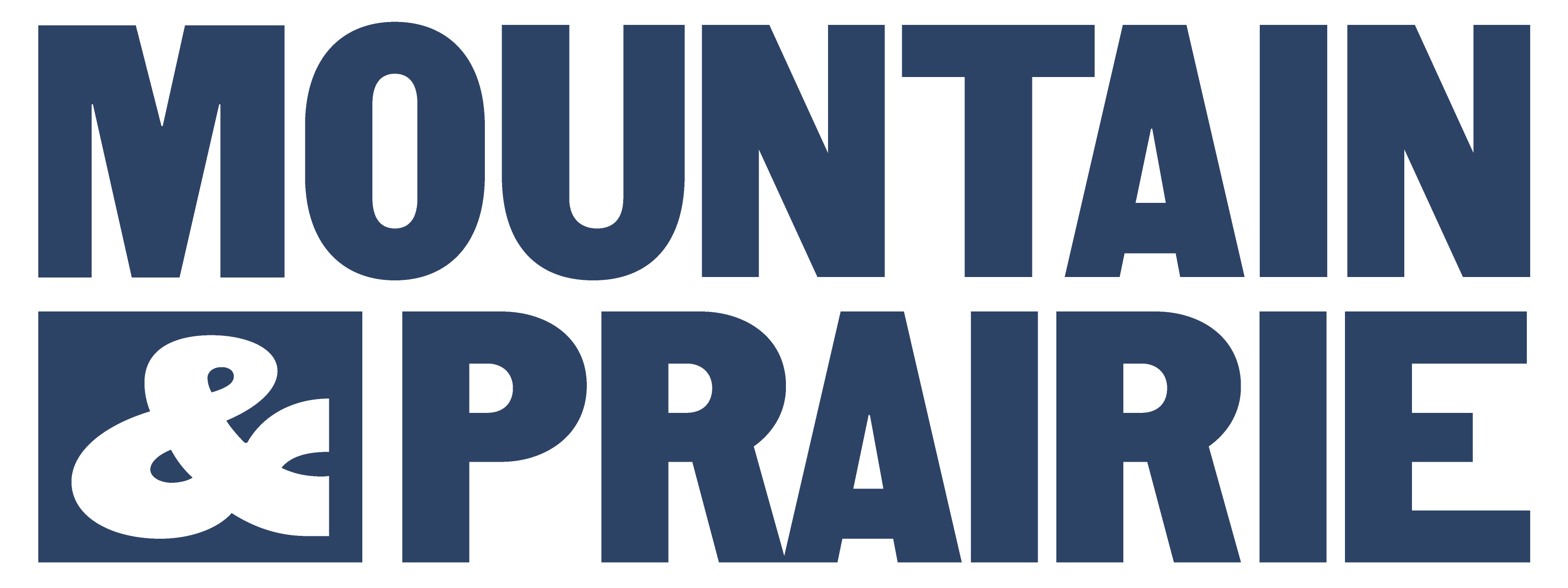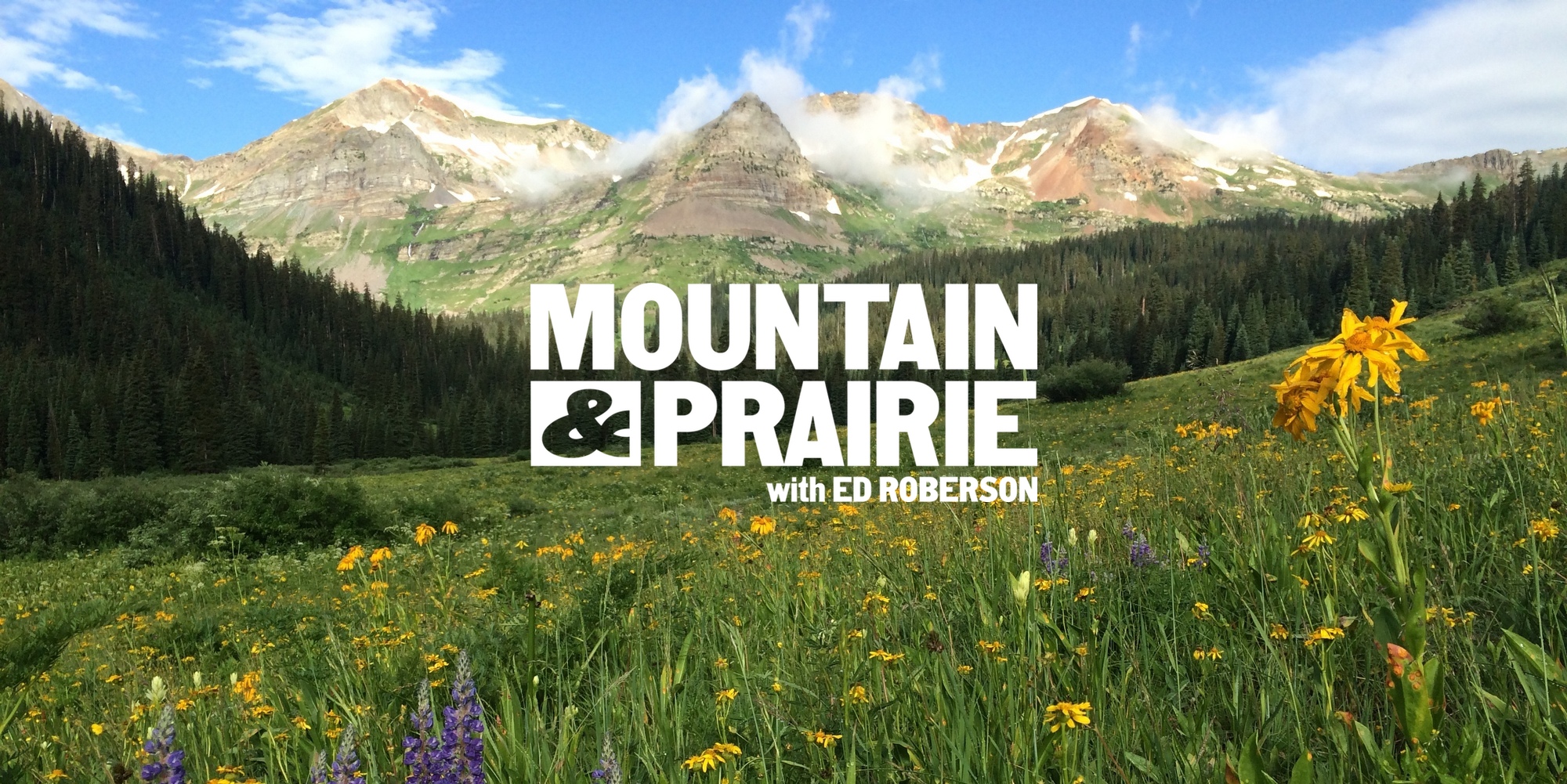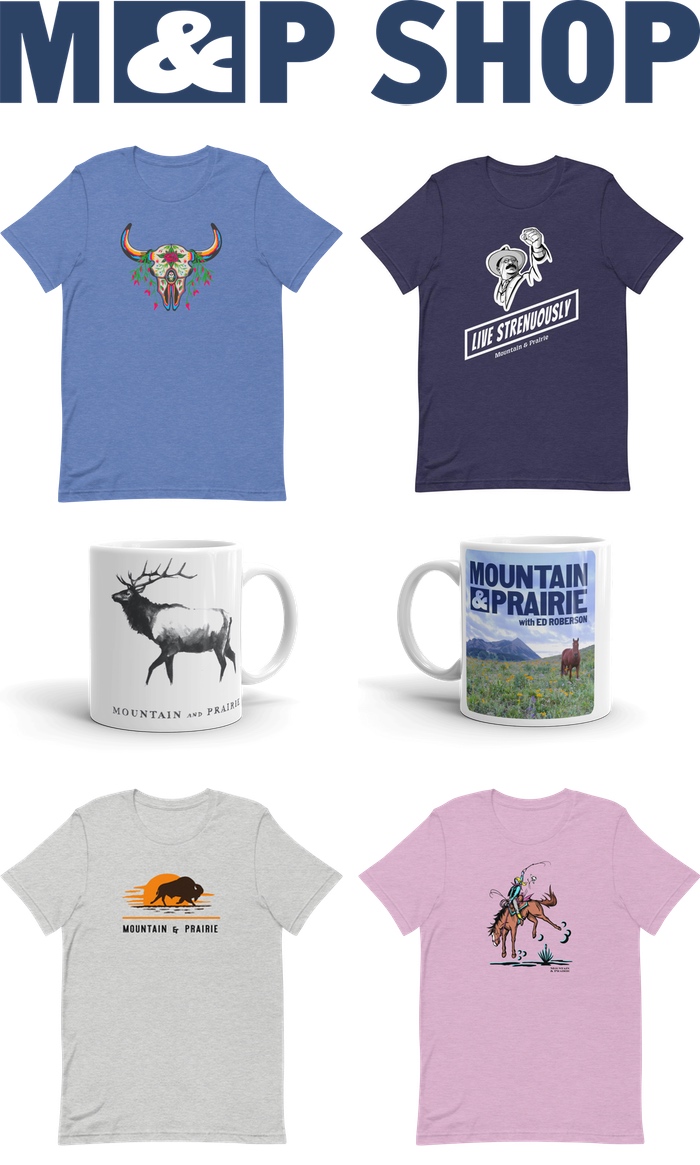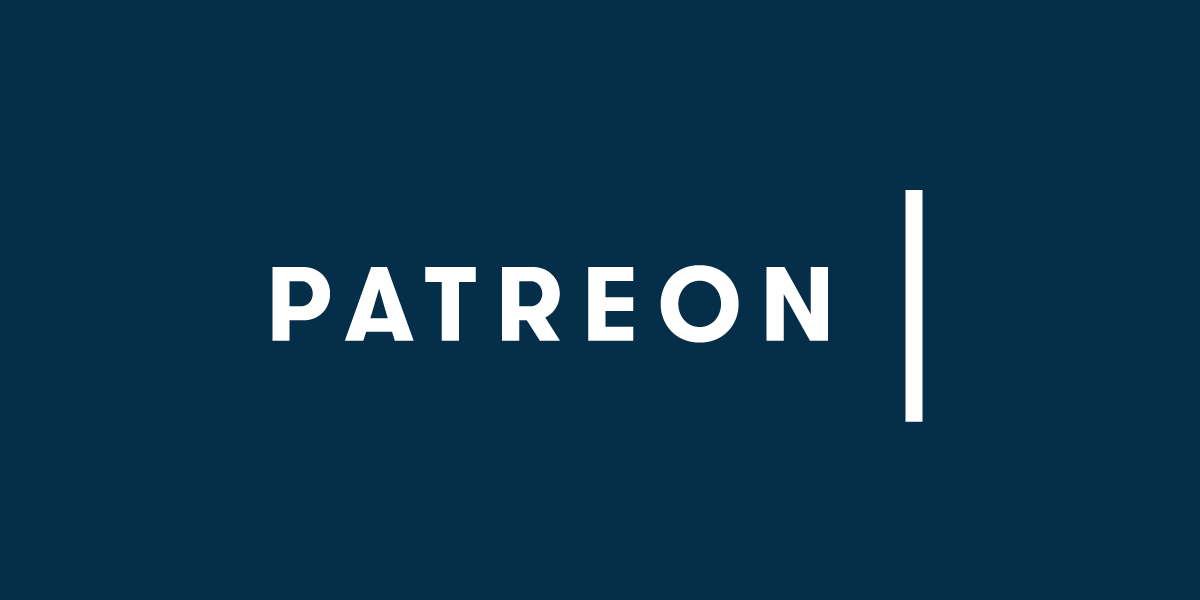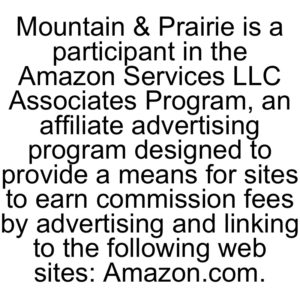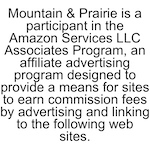Erik Petersen – Stories of Public Lands & the People Who Love Them

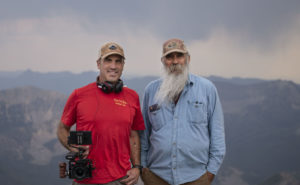
Erik Petersen is a Montana-based photographer, filmmaker, and photojournalist whose work showcases the American West and the many ways we enjoy our wide open spaces. His most recent film, A Few Steps Further, explores the commonalities between backcountry hunting and mountain endurance sports, while highlighting the spectacular wild landscapes that make these activities possible. Historically, hunters and adventure sports enthusiasts have not always seen eye to eye, but through his film, Erik demonstrates that the two groups have much more in common than not, most notably a love for public lands, pushing one’s physical limits, and hardcore adventure.
Growing up in Minnesota, Erik was an avid hunter and outdoorsman– but with a lifelong love for Montana, he moved West the day that he graduated from college. He worked for over ten years as a newspaper photographer throughout Montana, honing his craft and learning to produce high-quality work under the pressure and deadlines of traditional print media. Eventually Erik transitioned into freelance photography, taking some initial assignments that included trips to war-torn Afghanistan and the surrounding region. Today, much of his work centers around the landscapes of the American West, and his photographs and films highlight many of the values that we celebrate time and again on this podcast—conservation, public lands, adventure sports, and interesting people who love the West.
Erik and I caught up on the day that A Few Steps Further was released to the public, so I’ve embedded it in the episode notes—be sure to check it out, you’ll love it. In addition to that film, we talk about some of his other creative work, including a film he’s currently making that explores the threat of a goldmine near Yellowstone National Park and the promising bipartisan coalition that has emerged to fight the threat. We also cover the lessons he learned from his years in photojournalism, and how he manages to balance his roles as a husband and father of two boys while running his own creative business and pursuing adventure sports such as hunting and ultra running. We also discuss his creative mentors and heroes and his favorite books and films, plus he gives some good advice on how to take better landscape photos.
Visit the episode notes for links to everything, and enjoy this fun conversation with Erik Petersen.
A Few Steps Further from Erik Petersen on Vimeo.
All photos courtesy of Erik Petersen.
Click Here to Download on iTunes
—
Click Here to Download on Google Play
—
Click Here to Download on Stitcher
—
Episode Notes
Topics Discussed:
- Erik Petersen
- Erik on Instagram
- Erik on Vimeo
- A Few Steps Further
- Hardrock 100
- Jim Howell podcast
- Short Nights of the Shadow Catcher by Timothy Egan
- Patagonia media grant
- Gianforte body slamming reporter
- Jim Harrison
- The Road Home by Jim Harrison
- Legends of the Fall by Jim Harrison
- The House of Sky by Ivan Doig
- Sarah Calhoun podcast
- Red Gold
- Ben Knight
- Camp 4 Collective
- Harry Potter books
- Crazy Mountains
Bonus (or is it a penalty?) Episode – Ed in the Hot Seat
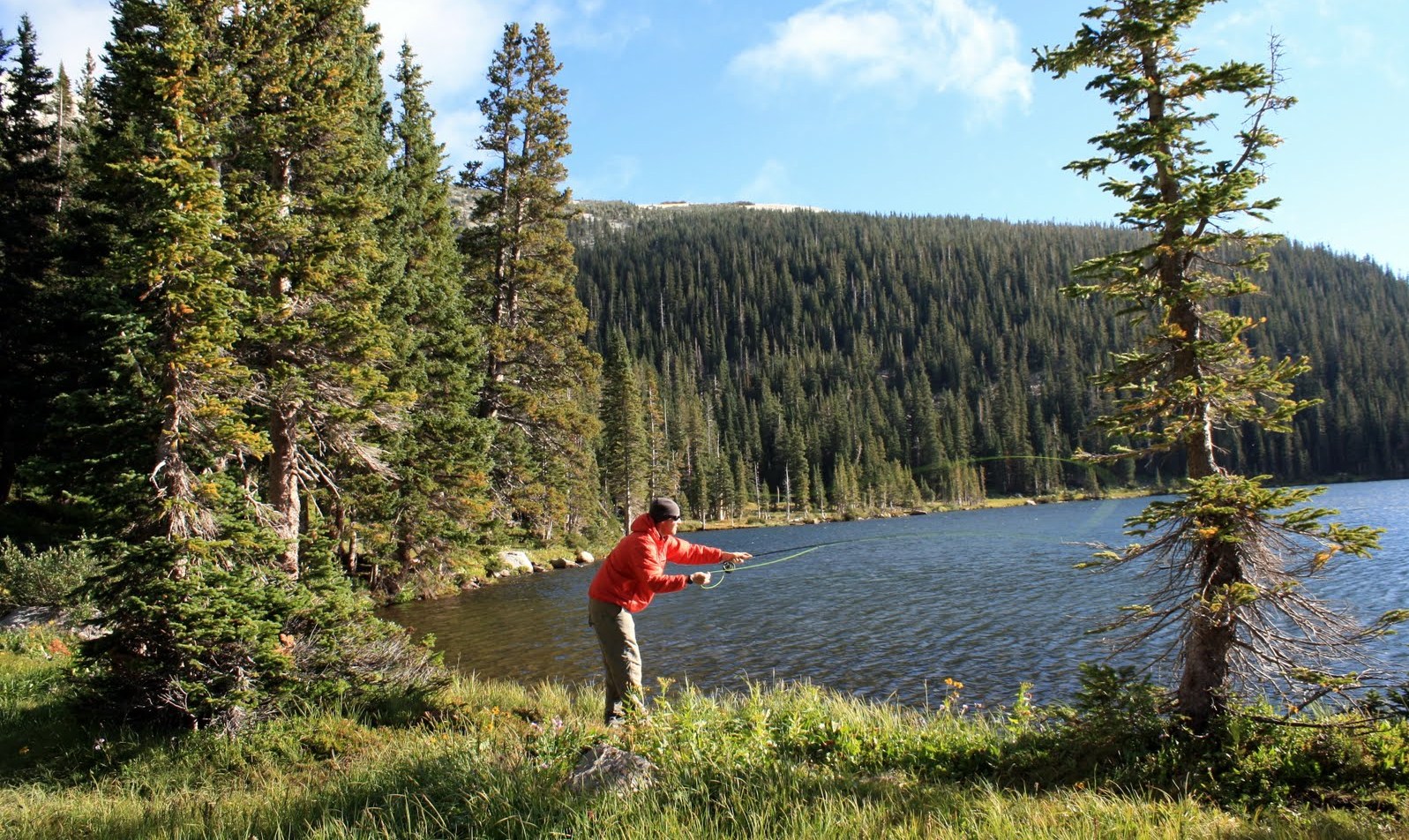
Normally on the podcast, I introduce you to innovative individuals who are shaping the future of the American West—ranchers, writers, athletes, authors, adventurers, conservationists, entrepreneurs… pretty much anyone who’s interesting and doing important work here in the West.
But this episode is a little different. This time the tables are turned, and I’m in the hot seat, being interviewed on the local Colorado Springs podcast, The Little London Show.
A few months back, Little London Show hosts Jeff and Darcie asked me to join them to chat about my new role as Conservation Director at Palmer Land Trust, my family’s move from Boulder to Colorado Springs, and some of the lessons I’ve learned from hosting the Mountain & Prairie Podcast. I thought it was a fun conversation, and we discussed a variety of interesting topics, including public lands, Theodore Roosevelt (of course), favorite books, my journey from selling ranches to full-time conservation, and much more.
And just to be clear, I don’t think I’m an Innovator of the American West, nor do I enjoy listening to my own voice, but we covered some topics that I thought might be of interest to you guys. As usual, there are links to everything we discuss in the episode notes, so see below to access all of those resources. And if you have a few moments, let me know if you enjoy this format of me answering a few questions. If you do, then every so often I’ll plan on releasing episodes from other podcasts where I am the interviewee or possibly answering questions from you guys, if that would be of interest.
But no matter what, we’ll be back to the normal interviews with real innovators next week, so be on the lookout for that. Again, thanks for your support and thank you for listening.
Click Here to Download on iTunes
—
Click Here to Download on Google Play
—
Click Here to Download on Stitcher
—
Episode Notes
Topics Discussed:
- The Little London Show
- Palmer Land Trust
- Best Farming Book List
- Book Club
- Reading Recommendations
- David Gessner interview
- Joe Grant interview
- Bundyville podcast
- Modern Huntsman article
- TR Trilogy by Edmund Morris
- The Big Burn by Timothy Egan
- Your Stoke Won’t Save Us article
- The Rise of Theodore Roosevelt by Edmund Morris
- Blood and Thunder by Hampton Sides
- The Emerald Mile by Kevin Fedarko
Juanita Vero – A Deep Love of Place

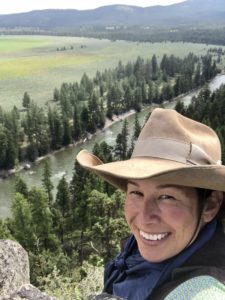
[Fall 2020 Update: To listen to Juanita’s most recent Mountain & Prairie podcast appearance in which she discusses her campaign for Missoula County Commissioner, please visit this webpage. Thanks!]
Juanita Vero is a partner at the E Bar L Ranch, a family-owned dude ranch located on the Blackfoot River, about an hour east of Missoula, Montana. The ranch was purchased and founded by Juanita’s great-grandfather and has served as a Rocky Mountain retreat for families from around the world for almost 100 years. If you’ve never visited but would like to learn more about the ranch, this conversation with Juanita is one of your only options—they don’t have a website, nor do they advertise. They serve the same clients year after year, clients who value an authentic, rustic, and tight-knit dude-ranching experience that is closely connected to the land.
But the term “dude ranch” doesn’t really do the E Bar L justice. Juanita’s family has participated in some cutting-edge conservation projects, protecting their ranch with a unique conservation easement that also allows for responsible timber management. Becoming a member of the ranch’s summer staff is also an amazing experience, and it’s not uncommon for staff members to develop such a deep love of the land that they go on to careers in ranching or conservation. Juanita and her family lead by example with their business management and land stewardship practices, which seem to rub off on everyone who visits or works at the ranch.
Juanita and I connected just as she was wrapping up another successful summer season on the ranch. We had a fun conversation that covered everything from her great-grandfather’s purchase of the ranch in the early 1900s all the way up to its current day operations. We talk in detail about Juanita’s commitment to community service, and we dig into some of her work with groups such as Trout Unlimited, Montana Conservation Voters, and the Blackfoot Challenge. We also discuss her youth on the ranch, and what she learned from leaving Montana in her teens to attend an east coast boarding school. We talk about toughness, the interesting story of how her parents met, and her blind date with her now husband, which happened to be a three-day elk hunt. And as usual, we cover favorite books, films, places in the West, and more.
This was a great conversation, so I know you’ll enjoy it. Thanks again for listening.
Header photo by Kirstie Lambert, other by Juanita Vero
Click Here to Download on iTunes
—
Click Here to Download on Google Play
—
Click Here to Download on Stitcher
—
Episode Notes
Topics Discussed:
- Missoula, Montana
- Taft School
- The Nature Conservancy
- Montana Conservation Voters
- Big Blackfoot Trout Unlimited
- Swan Valley Connections
- Blackfoot Community Project
- Blackfoot Challenge
- Community Food and Agriculture Coalition
- A Thousand Acres by Jane Smiley
- Breaking Clean by Judy Blunt
- Deer Hunting with Jesus by Joe Begeant
- Germs, Guns and Steel by Jared Diamond
- Collapse by Jared Diamond
- The Emperor of all Maladies by Siddhartha Mukherjee
- The Four Agreementsby Don Migel Ruiz
- Man’s Search for Meaning by Viktor Frankl
Become a Podcast Supporter!
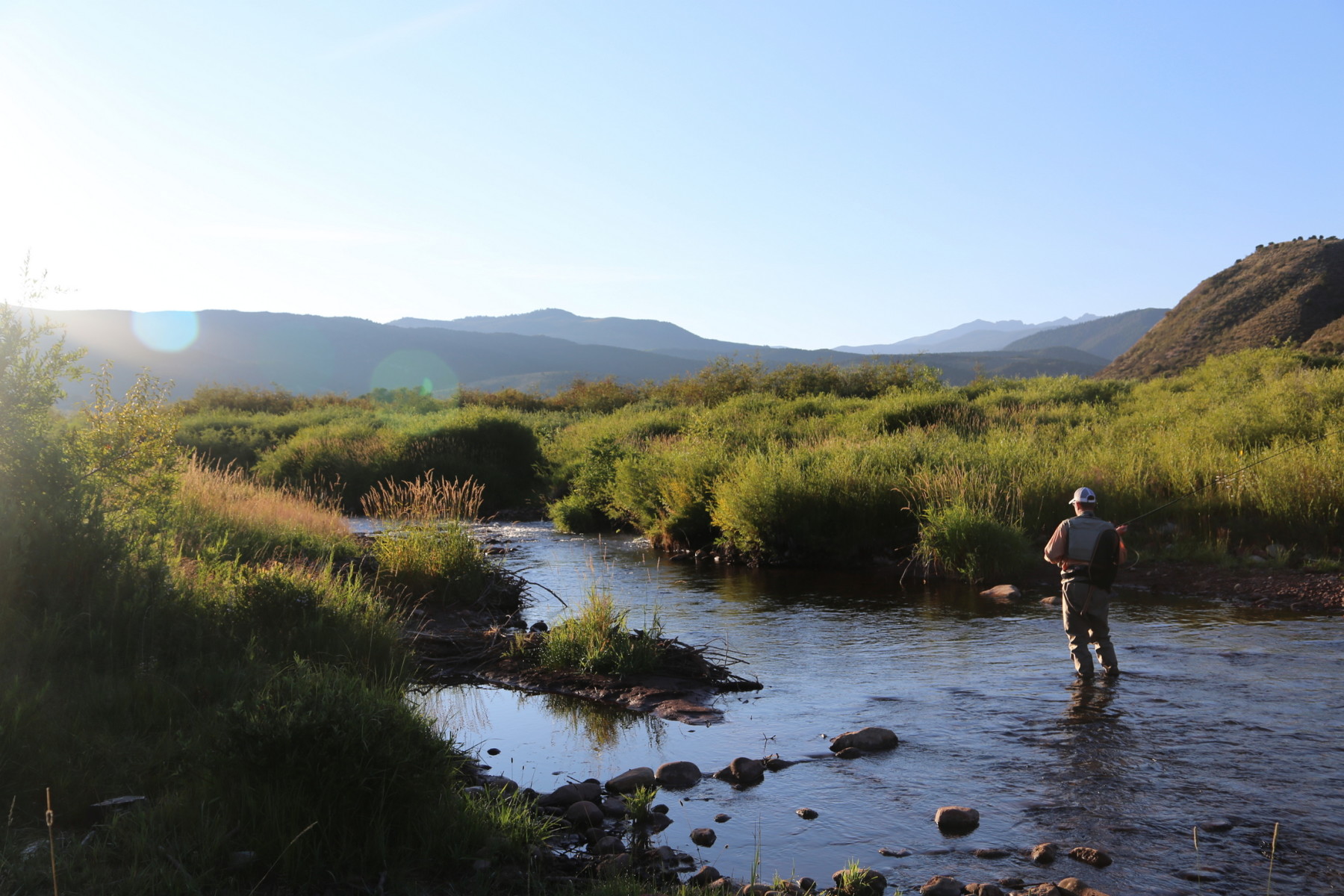
When I started the podcast, I had no expectations that any significant number of people would ever tune in. Fast forward to today, there are thousands of people like you who not only listen, but tell their friends, share on social media, leave amazing iTunes reviews, and reach out to me directly with kind words. I can’t thank you enough for the encouragement—it’s been unbelievably fulfilling and fun to connect with so many like-minded folks from around the world who love the American West.
Much to my surprise, people have begun to ask how they can support the podcast financially. I’ve set up two options: Patreon (a monthly subscription) and PayPal (a one-time payment). If the podcast brings you as much enjoyment and value as say, a latte or burrito, I’d greatly appreciate your financial support. Click over to Patreon to see the Theodore Roosevelt-themed giving tiers and associated supporter-only benefits. All supporters will have their names listed proudly on the Wall of Badasses below, right alongside my personal gurus (i.e. badasses emeritus), and the rewards only get cooler from there.
Seriously, thank you for your support, financial and otherwise. I wouldn’t be able to do this work without your interest and encouragement.
Click Below to Support Mountain & Prairie
Geoffrey Keating – Built to Last

Geoffrey Keating is a Colorado-based woodworker whose dedication to exquisite craftsmanship and creative design have made him one of today’s most sought-after furniture makers. But creating furniture is just a small part of his interesting life story—Geoffrey has also worked as a mechanic on a professional motocross team and holds two graduate degrees in theology, one from Yale and one from Notre Dame. He discovered his talent for woodworking about ten years ago while still in graduate school, and soon decided to go all in on building a career as a professional craftsman.
Geoffrey has a unique ability to understand and respect the past, while maintaining a commitment to a sustainable future. He uses reclaimed or responsibly sourced wood to create his furniture, and all of his work is built to last—he expects each piece to be passed on from one generation to the next. His workshop and home are in a beautiful 1897 building that was formerly a grocery store—he and his wife have fully repurposed the historical space to be their growing family’s base of operations. And as you’ll hear, Geoffrey’s study of history and theology plays a huge role in his design ethic and commitment to sustainability.
We met up at Geoffrey’s shop which is located just a block north of Colorado College in Colorado Springs. As you’d expect from someone with Geoffrey’s interesting background, we had a fun and wide-ranging conversation. We discuss his family’s history as craftsmen, and how he is the fifth generation to make a living working with wood. We talk about his transition from academia to woodworking, and how he managed to get his business off the ground in the early days. We chat about his commitment to quality, and how he balances his artistic goal of perfection with the economic realities of running a business. And we touch on his daily routines and techniques he uses to avoid the creative blocks that arise from time to time. As usual, we also cover his favorite books, most powerful outdoor experience, and more. Enjoy!

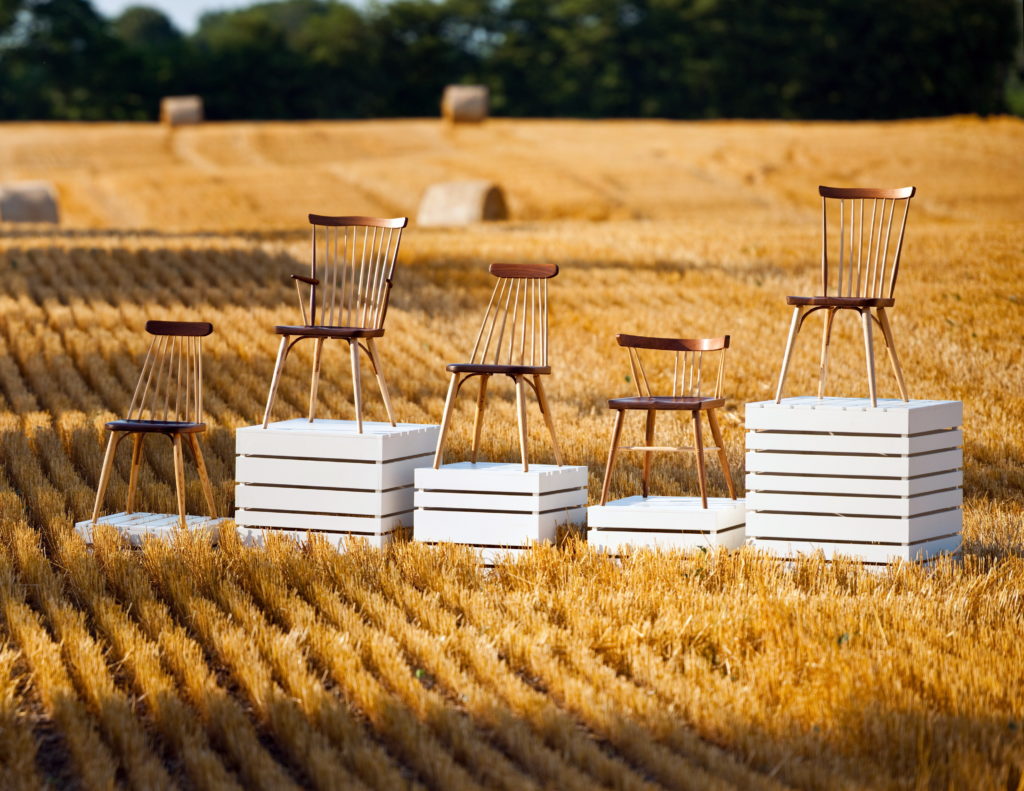
All photos courtesy of Geoffrey Keating
Click Here to Download on iTunes
—
Click Here to Download on Google Play
—
Click Here to Download on Stitcher
—
Episode Notes
Topics Discussed:
3:15 – Geoffrey describes his furniture
4:55 – Family history of woodworking
5:45 – Racing motorcycles and working as mechanic
6:45 – Teaching and theology
8:45 – Transition from theology to woodworking
11:15 – Starting the business
14:15 – The formation of Geoffrey’s style
14:50 – Dealing with the quest for perfection
18:15 – The business of woodworking
19:55 – History of his workshop
20:55 – Living in the West
22:15 – Life in Colorado Springs
23:55 – Commitment to sustainability
26:10 – Types of wood
27:00 – Mentors and books
29:45 – Dealing with distraction
32:35 – Goal versus process
33:45 – Dealing with creative block
35:25 – Life lessons from woodworking
36:55 – Talent versus work ethic
38:25 – Advice for woodworkers
42:25 – Favorite books
45:15 – Favorite films
46:45 – Hobbies
47:15 – Most powerful outdoor experience
50:15 – Favorite location
50:55 – Best advice ever received?
52:10 – Request of the listeners
53:05 – Connect with Geoffrey online
- Keating Woodworks
- Keating Woodworks on Instagramand Facebook
- Tom Morgan Rodsmiths podcast
- Yvon Chouinard
- Sam Maloof
- Riverside Art Museum
- The Poetics of Space by Gaston Bachelard
- Bury My Heart at Wounded Knee by Dee Brown
- Empire of the Summer Moon by SC Gwynne
- Lonesome Dove by Larry McMurtry
- Crime and Punishment by Fyodor Dostoevsky
- First Position
- Cuchara, Colorado
- Sangre de Cristo Mountains
Book Club Selection: “The Emerald Mile” by Kevin Fedarko
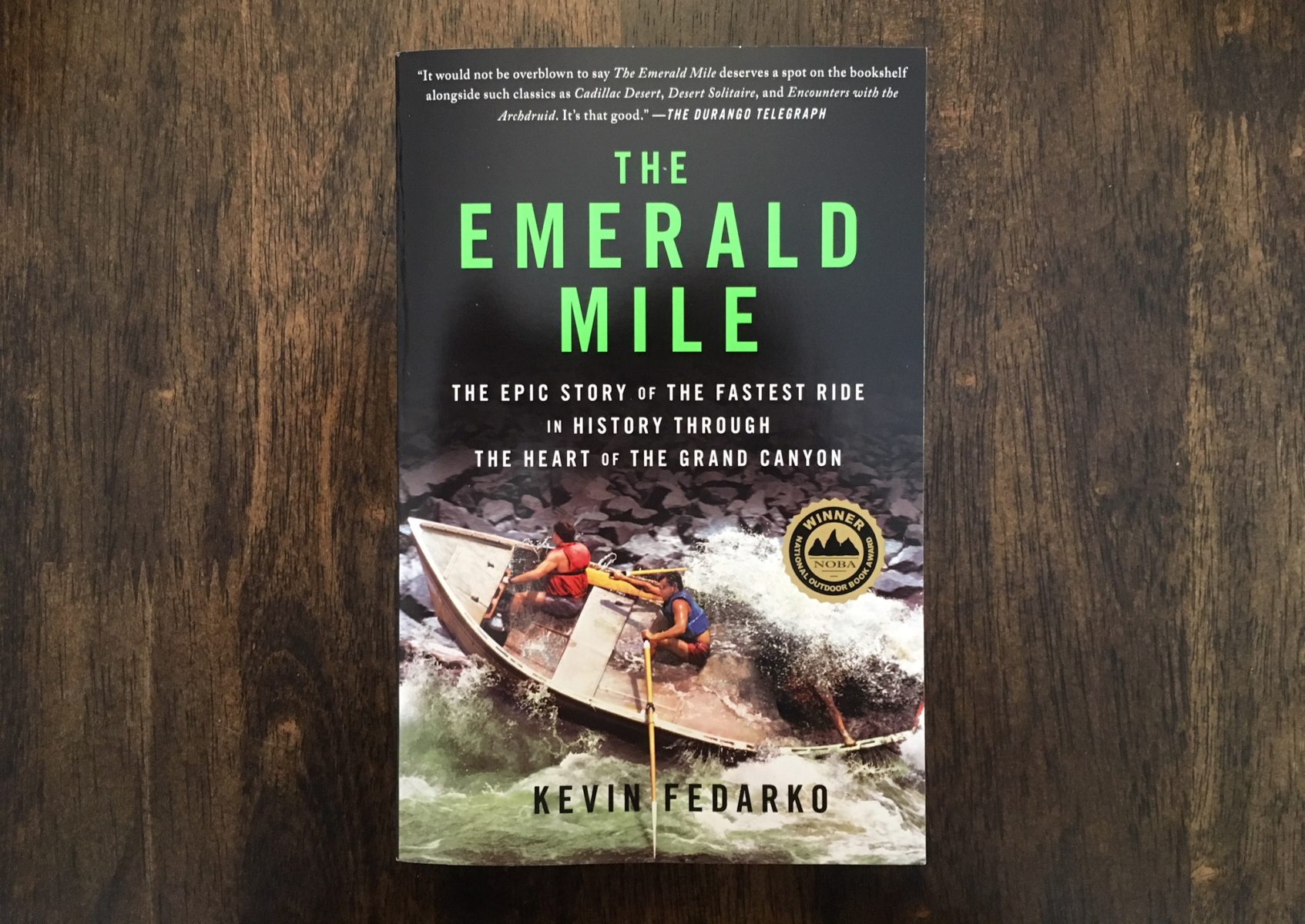
September-October Book Club Selection: “The Emerald Mile” by Kevin Fedarko
At the end of each podcast episode, I ask the guest to name his or her favorite book about the American West. The books mentioned have been as varied as the guests’ careers and backgrounds—non-fiction and fiction, biography and philosophy, academic texts and poetry. But one specific title continues to pop up time and again. This book touches on many important aspects of the West—its history, settlement by Europeans, and the all-important issue of water resources.
But unlike many dry texts about western history and water issues, this story is built around an epic, real-life adventure through the depths of the Grand Canyon. It’s one of those books that is so well written and action packed, you’ll have a hard time putting it down. But when you’re finished, you’ll realize that you learned an unbelievable amount about could-be boring subjects such as the Bureau of Reclamation, water rights, hydrology, and the government’s role in regulating water supplies. It’s almost as if the author figured out a way to trick his readers into understanding and caring about the plight of the Colorado River.
If you’re a regular podcast listener, you know exactly what book I’m talking about. The September-October book club selection is:
The Emerald Mile: The Epic Story of the Fastest Ride in History Through the Heart of the Grand Canyon by Kevin Fedarko
Everyone I know who has read this book has loved it, no exceptions. In my recent podcast episode with Pete McBride, he named The Emerald Mile as one of two books that are mandatory for those wanting to understand water in the West (and Pete knows a thing or two about the Colorado River). But even if you care nothing about water or the history of the West, it’s still a damn good read—wild adventure, crazy characters, all in an extreme, unforgiving landscape. This is a perfect book for Mountain & Prairie Podcast listeners.
I’ll be excited to hear your thoughts on the book and the issues it raises about us humans’ impact on the American West, as well as solutions for moving forward in a responsible, sustainable manner.
-
Grab a copy of The Emerald Mile—purchase it from Amazon or your local bookseller, or check it out from your local library. Start reading.
-
Head over to our Goodreads Group. Create an account, then join in the conversation in the online discussion forum. As you read, give your feedback on the book, pose questions to the group, and share your thoughts as you plow through the adventure.
-
The only way this works is with lots of participation from lots of people, so the more the better. DON’T BE SHY!
Mountain & Prairie Book Club – Goodreads Group
Hampton Sides – Live at the Aspen Institute
Hampton Sides: Live at the Aspen Institute
Hampton Sides is a narrative historian, best-selling author, and editor-at-large for Outside magazine. Mountain & Prairie listeners probably know Hampton best from his book Blood and Thunder: The Epic Story of Kit Carson and the Conquest of the American West, but the reality is that Blood and Thunder represents only a fraction of his work. Hellhound on His Trail, In the Kingdom of Ice, and Ghost Soldiers are a few of his other notable books, not to mention countless articles for Outside, National Geographic, and other well-known magazines. Hampton is originally from Memphis, Tennessee, but now splits his time between Santa Fe, New Mexico and Colorado Springs, where he’s the Journalist in Residence at Colorado College.
This podcast is a live recording of a conversation that Hampton and I had in front of an audience at the Aspen Institute in Aspen, Colorado. This public event was part of a four-day seminar about the history of the 19th Century American West, which was hosted by the Aspen Institute’s Society of Fellows. Since the overall theme of the week was the West, Hampton and I focused our conversation on Blood and Thunder, and chatted about the many topics presented in the book: the Navajos, the life of Kit Carson, Carson’s obsession with loyalty, Manifest Destiny, historical misconceptions about the time period, Hampton’s process for researching the book, and more. There are also a few minutes of Q&A from the audience toward the end of our talk. The Aspen Institute also filmed the event, so if you’d rather watch the interview, check out the video below.
Having the opportunity to speak with one of my all-time favorite authors at such an exceptional, world-renowned institution was a real dream come true. Endless thanks to the Aspen Institute for inviting me, and the same to Hampton for being so engaging, funny, knowledgeable, and down to earth. You’re going to learn a lot from this episode, so I hope you enjoy listening… or watching! And if you haven’t already, you should order and read Hampton’s books as soon as possible—you won’t be disappointed.
All photos and video courtesy of the Aspen Institute
Click Here to Download on iTunes
—
Click Here to Download on Google Play
—
Click Here to Download on Stitcher
—
Episode Notes
Topics Discussed:
- Hampton Sides
- The Aspen Institute
- Society of Fellows
- American West Public Lecture page
- The American West: The History, the Values, the Struggle, and the Legacy of the 19th Century
- VIDEO of interview
- Blood and Thunder by Hampton Sides
- All Hampton Sides books
- Kit Carson
- Navajo
- John C Fremont
- James Henry Carleton
- Down the Santa Fe Trail by Susan Magoffin
- Beyond the Hundredth Meridian by Wallace Stegner
- Cormac McCarthy
- Blood Meridian by Corman McCarthy
- Shelby Foote
Pete McBride – A Passion for Water & Wild Places
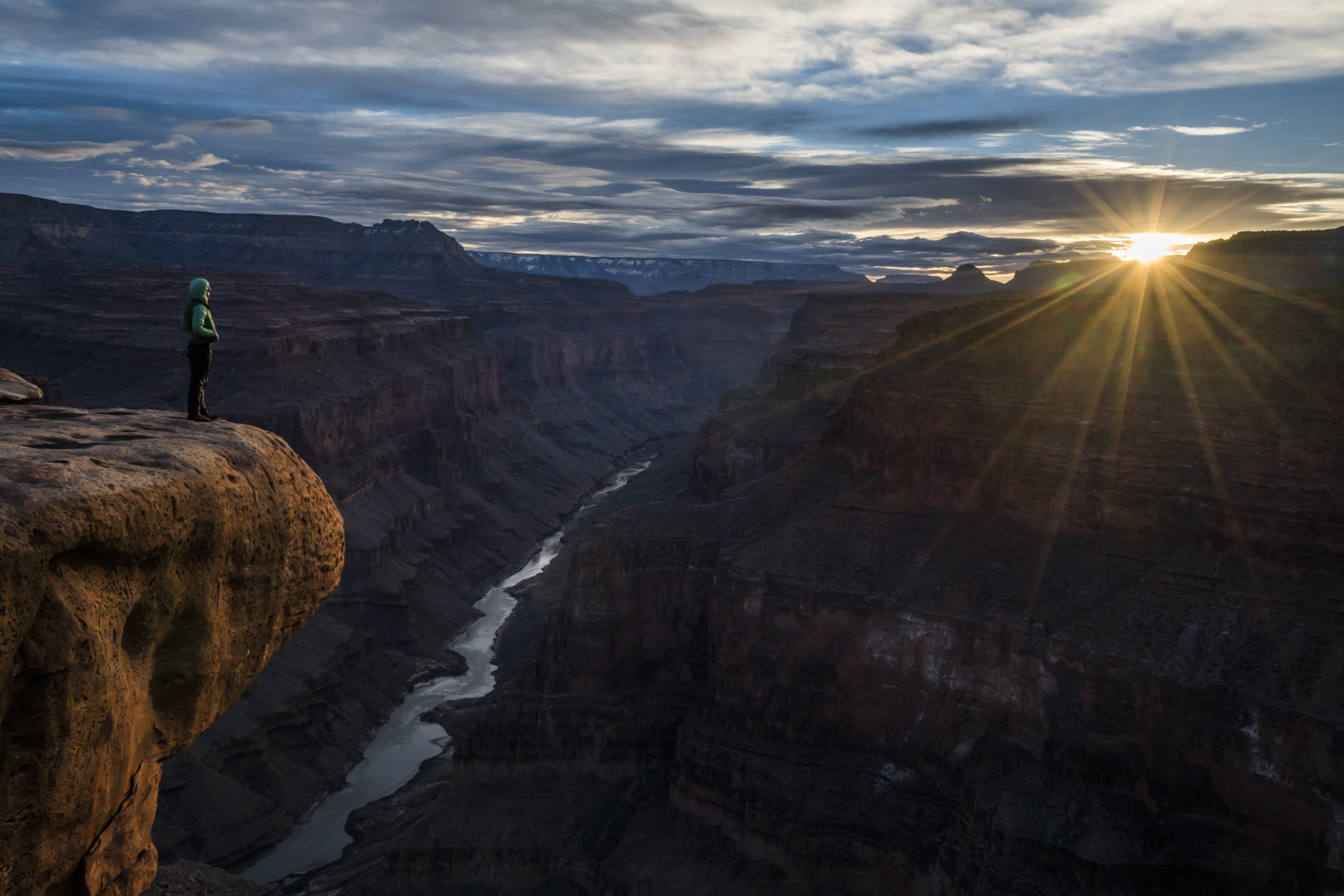
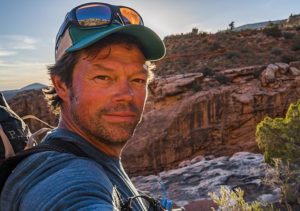
Pete McBride is a National Geographic photographer, filmmaker, and writer who tells untold stories from some of the world’s wildest places. Most recently, Pete and his friend, author Kevin Fedarko, hiked the entire 800-mile length of the Grand Canyon, documenting the journey for his forthcoming book The Grand Canyon: Between River and Rim. The book is an amazing combination of breathtaking photography, adventure travelogue, and an examination of some of the conservation challenges facing the legendary national park. Given the fact that more people have stood on the moon than hiked the length of the Grand Canyon, it’s no surprise that this book is a must-read.
Growing up in Colorado’s Roaring Fork Valley, Pete spent his childhood skiing, playing hockey, and working on his family’s ranch. After college on the east coast, he cut his teeth in journalism at the High Country News, where he discovered his proclivity for photography. From there, he set out on a series of adventures, camera in hand, and with a lot of hard work and hustle, he eventually sold his first story toNational Geographic. After traveling the world as a photojournalist and having some close calls in Somalia and on Mt. Everest, Pete decided to focus his efforts on his “backyard river”—the Colorado River. Pete seems to have found his true calling in this iconic waterway—he has combined his artistic eye, journalistic perspective, and pursuit of adventure to become one of the Colorado River’s greatest advocates.
Pete and I met up in Aspen just before he headed to the airport to catch a flight. Even though our time was limited, we managed to cover a wide range of fun topics. We dig into the details of his Grand Canyon hike, and Pete tells a scary story of coming way too close to death early in the trip. We talk about his relationship with Kevin Fedarko, and how their differing personalities complement each other well on hardcore adventures. Pete shares more about his career as a photographer, and how he sees his strong work ethic as the key to his success. Pete also gives a great overview of the challenges facing the Colorado River, and he offers some solid book recommendations for folks who want to learn more about water issues in the West.
Hopefully I’ll get Pete back on for a Part 2 at some point in the future, because as you’ll hear, there’s still plenty more to discuss. For now, I really appreciate him taking the time to chat during such a busy time and hope you all enjoy the interview.
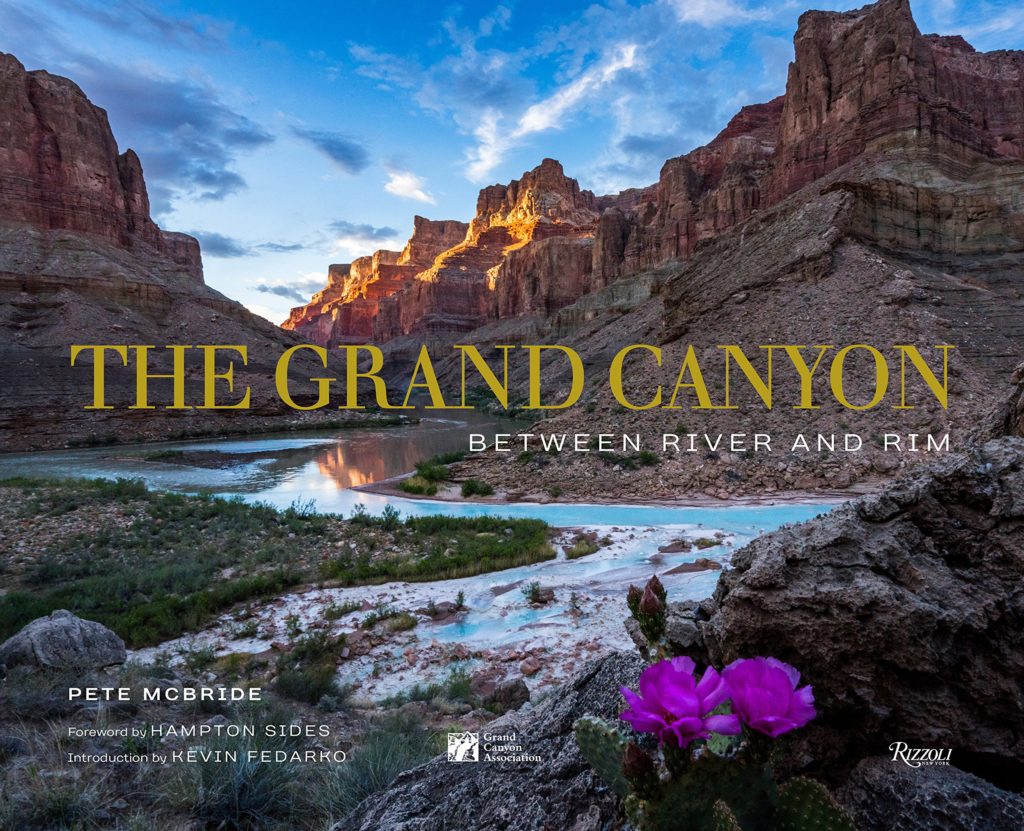
All photos courtesy of Pete McBride
Click Here to Download on iTunes
—
Click Here to Download on Google Play
—
Click Here to Download on Stitcher
—
Episode Notes
Topics Discussed:
Stephen Smith, Part 2 – Evolution & Reinvention
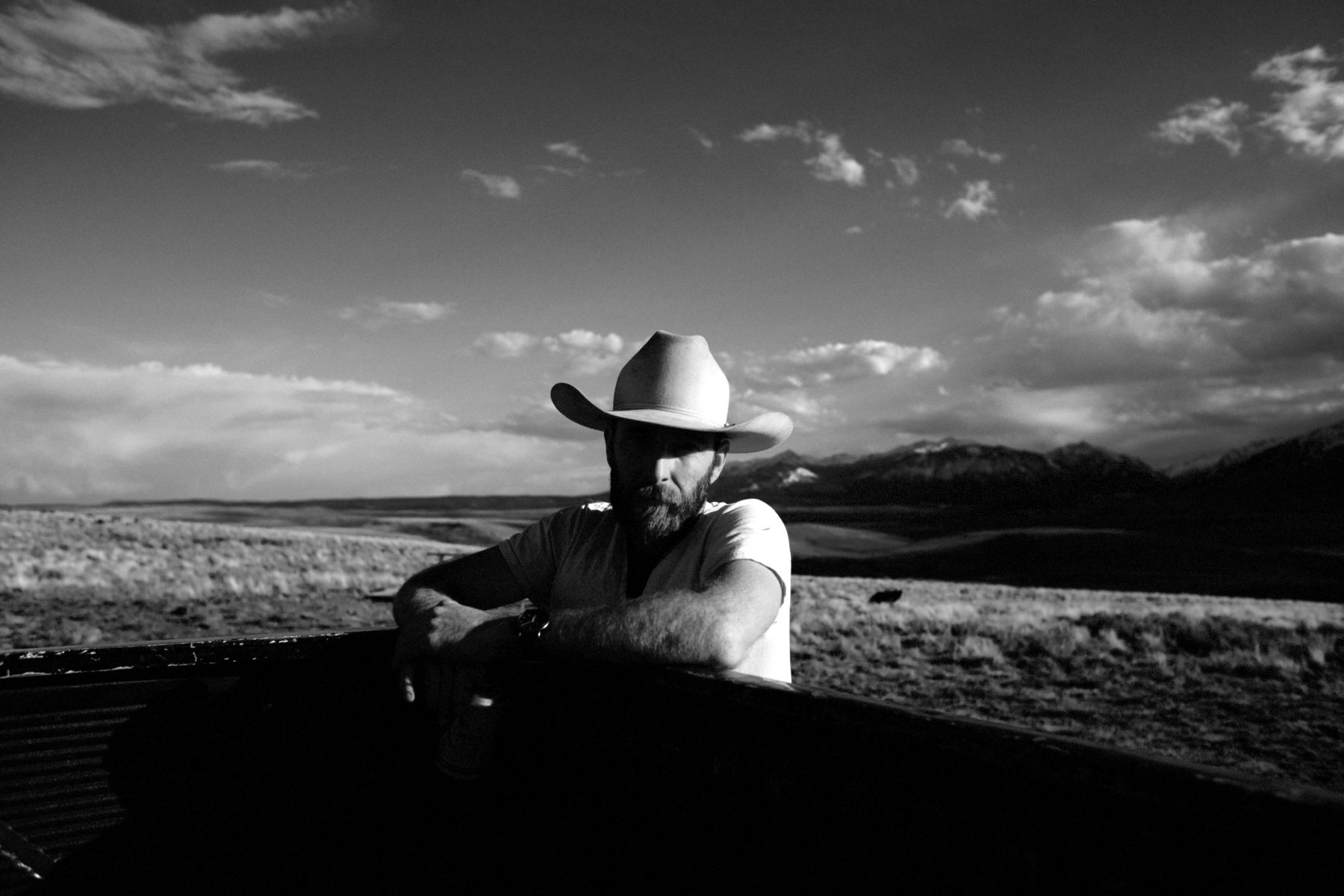
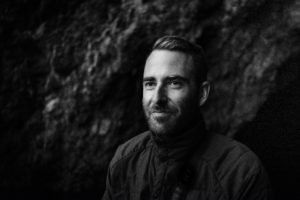
Those of you who have been listening to the podcast since the early days probably remember my first conversation with Stephen Smith. We talked for an hour and a half about his career as a professional photographer, his motorcycle adventures around South America, his time working on farms and ranches, surfing, and more. Since that conversation almost exactly two years ago, Stephen has continued to evolve as an adventurer, entrepreneur, and artist. He bought a 170-acre property in eastern Oregon, founded a plant medicine CBD company, and has continued his work as a professional freelance photographer. With all these exciting developments, I thought it was time to have him back on the podcast for round two.
Stephen has a big vision for his new endeavors, and, more importantly, he has the work ethic and risk tolerance to achieve his goals. We talk a lot about his new property, which he’s calling Crow Creek, and how he has gone about transforming a raw piece of ground into his full-time home. We also chat in detail about his CBD company ONDA Wellness, which provides all-natural plant-based relief for everything from muscle soreness to anxiety to insomnia. If you are someone who is thinking of starting your own business, or simply has an interest in outside-the-box entrepreneurship, you will learn a lot from Stephen’s story.
As you’ll hear in our conversation, Stephen is amazingly open and honest about the challenges he has encountered while pursuing these new ventures, physically, mentally, and financially. He pulls no punches when describing the difficulty of simultaneously homesteading a property, running a start-up, and freelancing, but you’ll notice that his tone remains focused and optimistic, while still being realistic. Yes, the Instagram posts of Crow Creek and Stephen’s travels around the West are stunning, but make no mistake, he’s grinding at a breakneck speed to make it all work. His journey is inspiring and real, so I know you’ll enjoy listening.
And as an added bonus, Stephen is offering a 15% discount on ONDA Wellness products to Mountain & Prairie listeners. Just use the code “ED15″ at checkout, and the discount will be applied. I can’t speak highly enough about ONDA, so I encourage you to give it a try.
Thanks to Stephen for coming back on the podcast. Hope you enjoy!
All photos courtesy of Stephen Smith
Click Here to Download on iTunes
—
Click Here to Download on Google Play
—
Click Here to Download on Stitcher
—
Episode Notes
Topics Discussed:
- Stephen Smith website
- Stephen on Instagram – @iamstephensmith
- First Stephen Smith podcast
- Crow Creek
- ONDA Wellness – Website & Instagram
- ONDA promo code: “ED15”
- Jack Rabbit Hill Farm
- Where the Water Goes by David Owen
- Joseph, Oregon
- Chris Eyer podcast
- David Mahaffey
- Cate Havstad podcast
- East of Eden by John Steinbeck
- I Will Fight No More Forever by Merrill Beal
- Wormwood
- Man in the Arena
Upcoming Event! Hampton Sides at the Aspen Institute
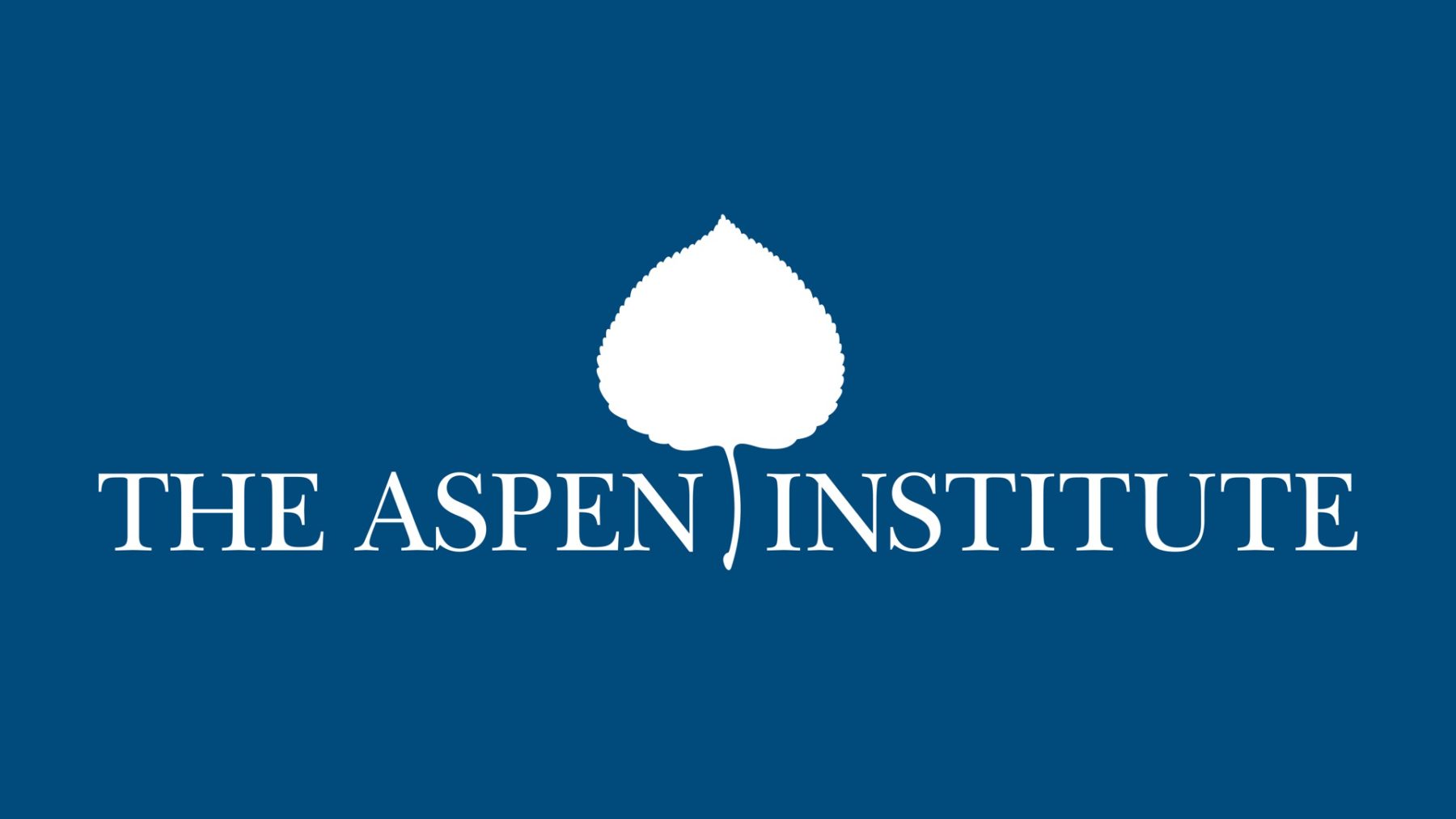
Upcoming Event! Hampton Sides at the Aspen Institute
I’m thrilled to announce that I’ll be interviewing Hampton Sides on stage at the Aspen Institute on Wednesday, August 15th. We’ll be discussing his amazing book Blood and Thunder: The Epic Story of Kit Carson and the Conquest of the American West, as well as a whole host of topics related to the 19th Century American West. It’s going to be an engaging conversation at a world-renowned venue, so I hope to see you there!
Below is the full program description– click the title to visit the Aspen Institute’s event webpage.
American West Public Lecture: Kit Carson and the 19th Century American West: A Legendary Journey of Exploration
Featuring Hampton Sides, Editor-At-Large of Outside Magazine and best-selling author, in conversation with Ed Roberson, Conservation Director of Palmer Land Trust and host of the Mountain & Prairie podcast. Hampton Sides will share his insights into the life of legendary Kit Carson, a 19th century trapper, military man, and pioneer. Enveloped in mythology, Carson’s story is a wonderful example of the conflict of culture and values that so defines 19th Century American West today.
Fee: $25. Tickets on sale Friday, August 3 at www.aspenshowtix.com.
Parking is very limited. Please carpool, walk, ride RFTA, or ride a We-Cycle bike. Information: www.we-cycle.org or www.rfta.com, or download the Transit app.
Rebecca Jewett – Big Ideas for the New West
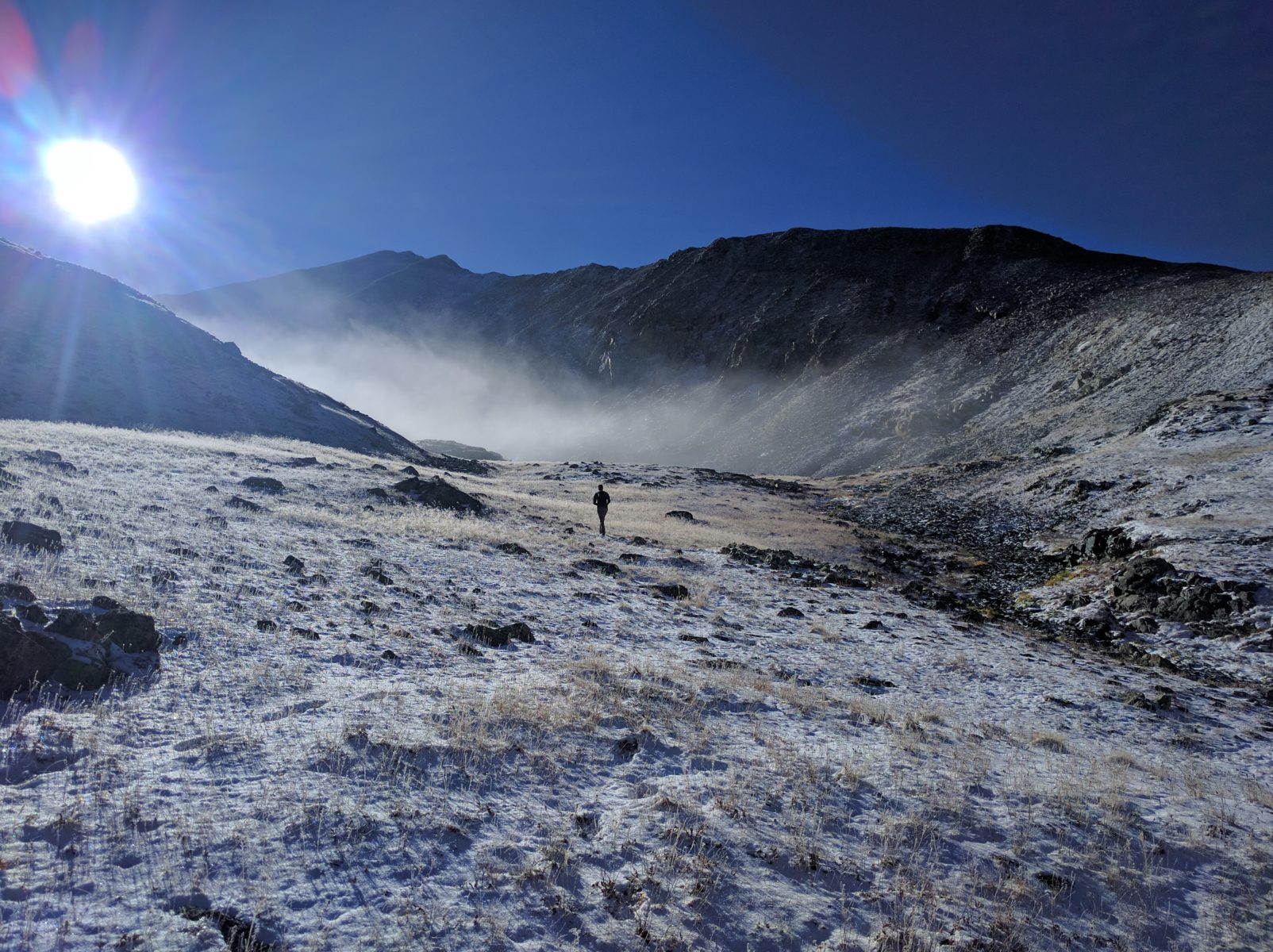
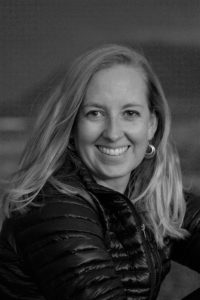
Rebecca Jewett is the executive director of Palmer Land Trust, a conservation organization committed to protecting southern Colorado’s recreational open space, working agricultural land, and stunning scenic vistas. Under Rebecca’s leadership, Palmer has moved away from traditional, decades-old land conservation methods and into a more proactive model, pursuing audacious and outside-the-box conservation strategies across a variety of landscapes. By focusing on community above all else, Palmer is finding win-win scenarios that benefit all of southern Colorado’s numerous stakeholders, from ranchers and farmers to mountain bikers and climbers, and from cities and municipalities to counties and rural areas.
Rebecca is a fifth-generation Coloradan who grew up deeply immersed in the outdoors, which instilled a passion for open space that has guided her career trajectory. After ten years in public lands-related work, she made the shift into private land conservation when she took the helm of Palmer. As you’ll hear in our conversation, Rebecca has big plans for tackling some of Colorado’s most pressing conservation issues, issues that threaten the West from ecological, economic, and community perspectives. Her enthusiasm for her work is contagious, and her ability to communicate complex issues in an engaging way is second-to-none.
Folks who follow me on social media may already know, but I was so impressed with Rebecca and the rest of the Palmer team that I recently left the ranch brokerage business and joined the organization as a full-time employee. The opportunity to apply my professional expertise in real estate and finance to some of the West’s most challenging problems was too great of an opportunity to pass up—so I’m officially a full-time Palmer staff member, Rebecca is my boss, and I couldn’t be more excited about the work ahead.
I know you’ll enjoy this conversation, because Rebecca and I cover a wide range of topics that should be of interest for anyone who loves the West. We discuss the importance of water, agriculture, open space, and recreation, and how conservation can bring together stakeholders from all of those factions. We talk about the Arkansas River basin where Palmer focuses its efforts, and how it encompasses every Colorado landscape, from 14,000-foot mountains to flat, open grasslands. Rebecca elaborates on her leadership style, and also talks about her experience being a female leader in a once male-dominated industry. She also explains some specific projects that Palmer is taking on, and how the entire Colorado land trust community collaborates toward common goals. As usual, we also cover favorite books, films, places in the West, and much more.
If you haven’t already, give Rebecca and Palmer Land Trust a follow on social media, and be sure to check the episode notes for links to everything we discuss. Enjoy!
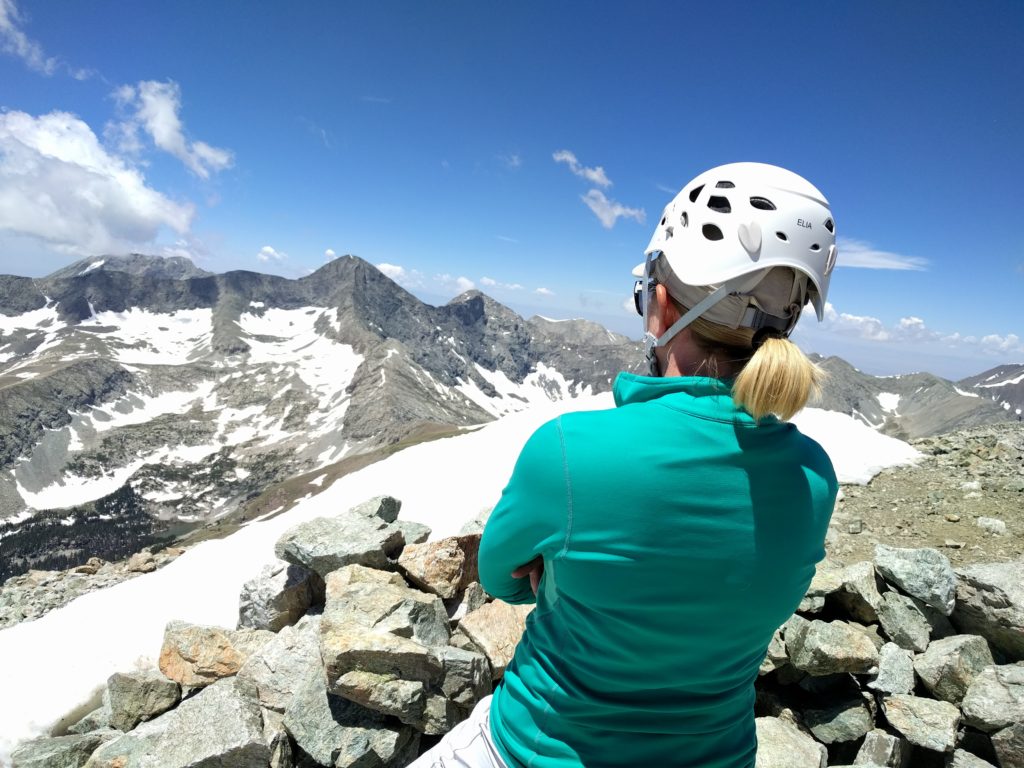
All photos courtesy of Rebecca Jewett
Click Here to Download on iTunes
—
Click Here to Download on Google Play
—
Click Here to Download on Stitcher
—
Episode Notes
Topics Discussed:
Ed on “The Little London Show”
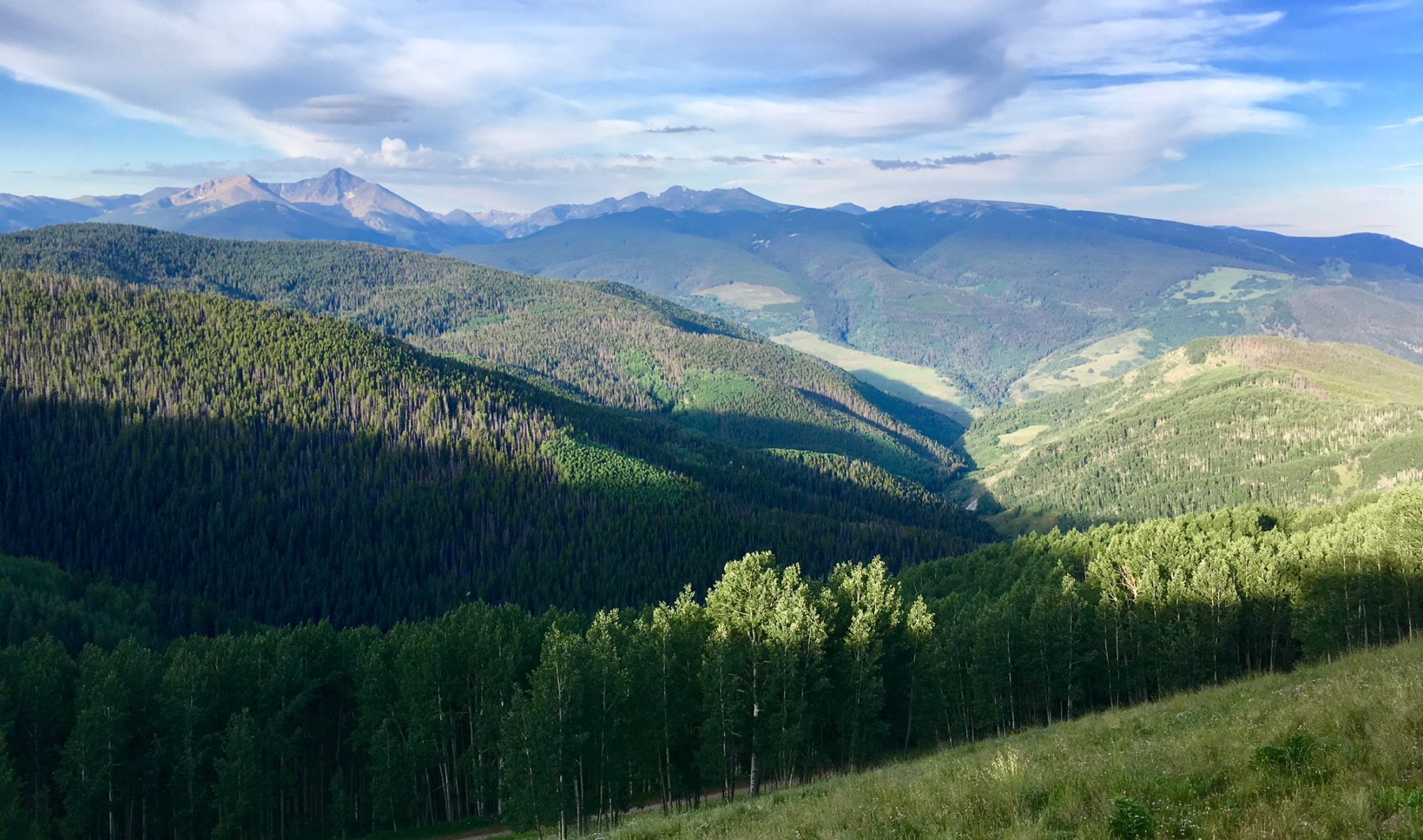
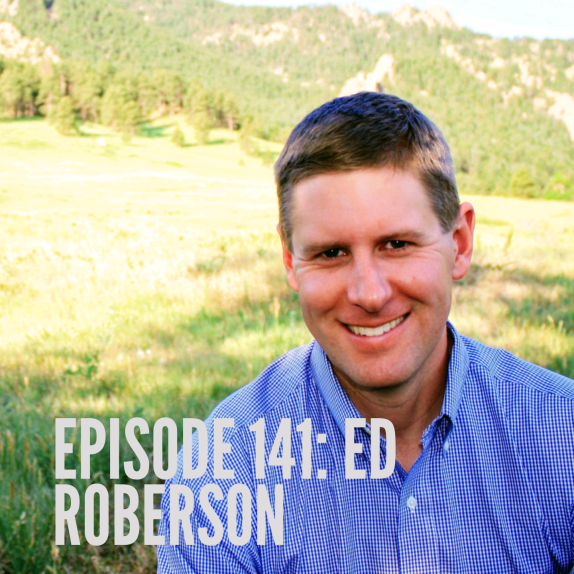 Last week, Jeff and Darcie over at Colorado Springs’ local podcast, The Little London Show, graciously asked me to stop by for a chat. We had a fun conversation and covered wide range of subjects—conservation, my new gig with Palmer Land Trust, Theodore Roosevelt, public lands, the Springs vs. Boulder, books, the ridiculousness of ultra running, my podcast, and much more.
Last week, Jeff and Darcie over at Colorado Springs’ local podcast, The Little London Show, graciously asked me to stop by for a chat. We had a fun conversation and covered wide range of subjects—conservation, my new gig with Palmer Land Trust, Theodore Roosevelt, public lands, the Springs vs. Boulder, books, the ridiculousness of ultra running, my podcast, and much more.
I have no idea if I made a lick of sense—most likely not—but if you’re interested, you can listen below.
The Little London Show: Episode 141 – Ed Roberson
Download on iTunes
Download on Stitcher
Book Club Selection: “Blood and Thunder” by Hampton Sides
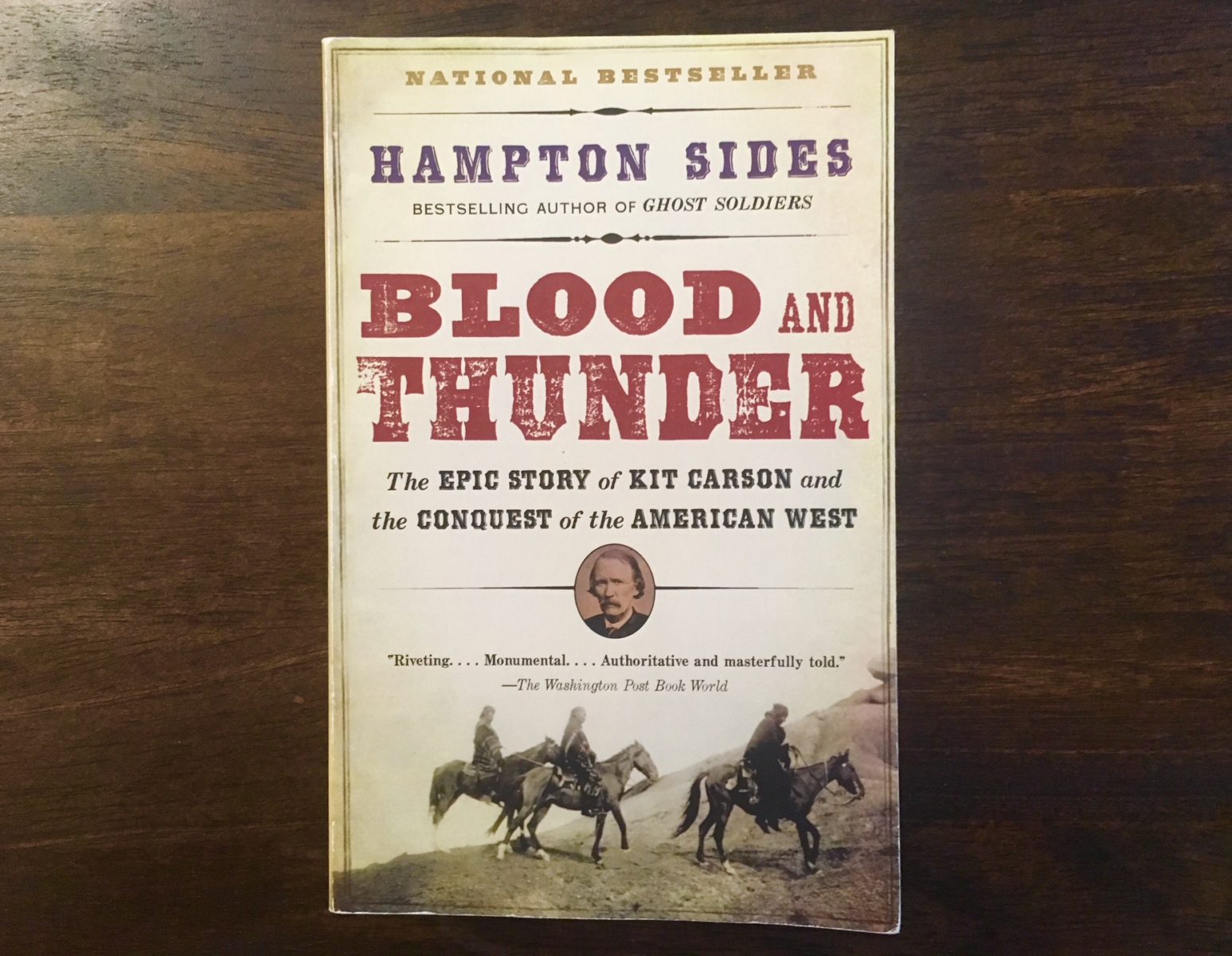
July-August Book Club Selection: “Blood and Thunder” by Hampton Sides
If you’ve been following the blog and podcast for a while, you know that I read tons of books about the American West—everything from the detailed history of barbed wire to biographies of Stegner and Abbey to ecological examinations of the West’s large mammals.
But if I could only recommend one book, the choice would be easy. This book combines dense, specific history of the white man’s settling of the West, structured around the biography of one of our country’s most heroic-notorious-paradoxical characters. It sheds light on the horrific mistreatment of Native Americans, while explaining the “Manifest Destiny” thinking that led to those atrocities. And it presents all of this information in an amazingly entertaining and exciting narrative that is truly fun to read.
The July-August Book Club Selection is:
Blood and Thunder: The Epic Story of Kit Carson and the Conquest of the American West by Hampton Sides
Blood and Thunder is in my top five favorite books of all time, and—no exaggeration—everyone I know who’s read it has loved it. Reading the book gave me a base level of knowledge about the West that has served me well both professionally and personally. This is also one of those books that introduces you to countless characters and concepts that will warrant further reading and study—it’s a gateway drug into deep Western history.
If you’re like me, you’ll be disgusted by the government’s treatment of Native Americans, and likely perplexed by Kit Carson’s role in the “taming of the West” and the seemingly hypocritical nature of some of his actions. Was he really the Western superhero character that pop culture portrays him as? I’ll be interested to hear your thoughts on that.
Hampton Sides is a world-class writer who has honed his gift for telling complex stories in easy-to-read, engaging prose. I’ve read most of his books and much of his shorter-form writing for Outside magazine and the like—his subjects span a broad range but his writing is consistently top-notch. But of all he has written, there’s something special about Blood and Thunder that has stuck with me for years and years, so I trust that you’ll glean lots of value from it, as well.
-
Grab a copy of Blood and Thunder—purchase it from Amazon or your local bookseller, or check it out from your local library. Start reading.
-
Head over to our Goodreads Group. Create an account, then join in the conversation in the online discussion forum. As you read, give your feedback on the book, pose questions to the group, and share your thoughts as you plow through the epic. I’m especially interested in your thoughts on Kit Carson—is he the hero that history has made him out to be? I have my own thoughts that I’ll share.
-
The only way this works is with lots of participation from lots of people, so the more the better. DON’T BE SHY!
Mountain & Prairie Book Club – Goodreads Group
Sarah Wentzel-Fisher – Conservation in the Radical Center
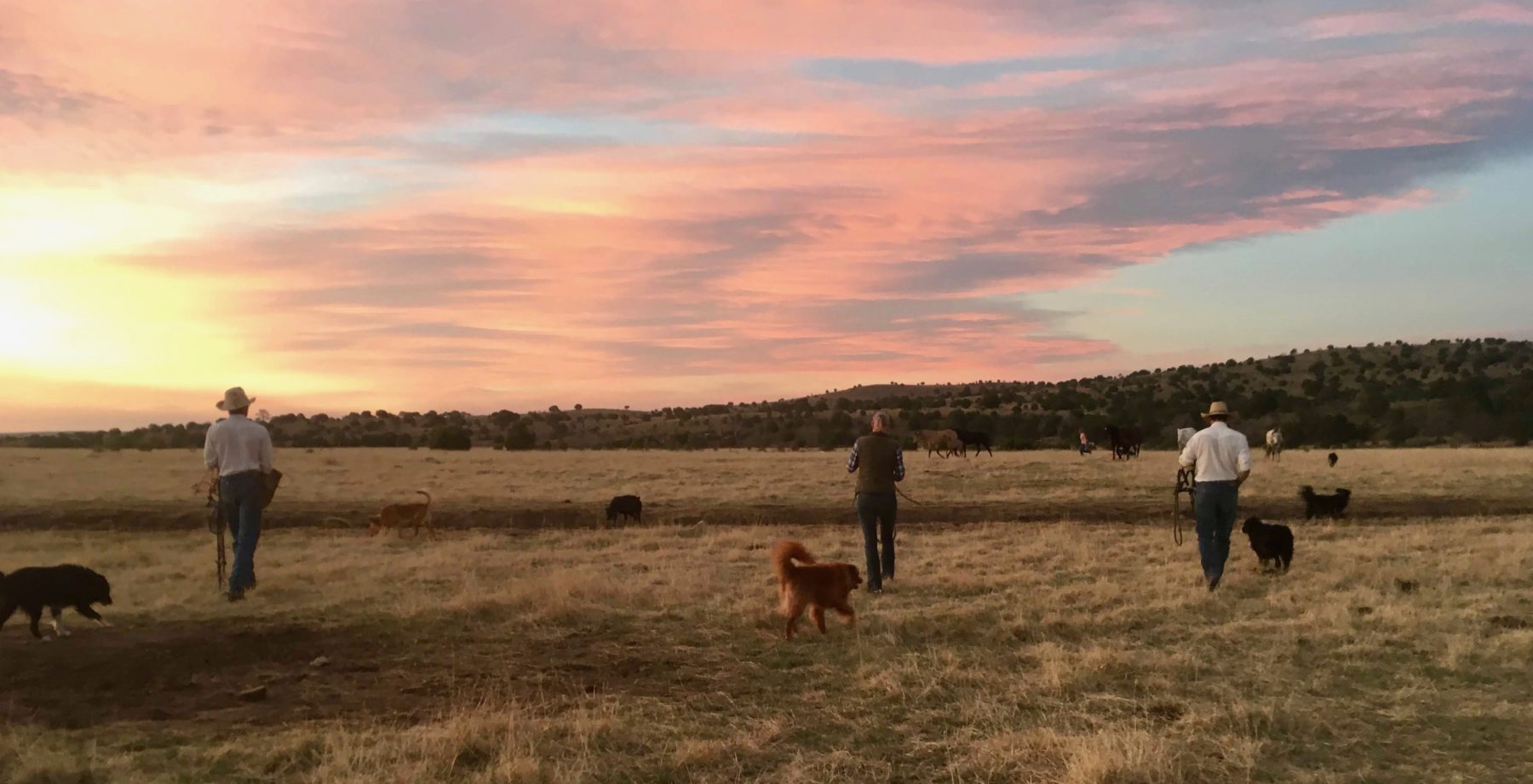
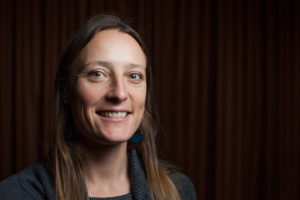
Sarah Wentzel-Fisher is the Executive Director of the Quivira Coalition, an innovative conservation organization devoted to building soil, biodiversity, and resilience on western working landscapes. Quivira was founded over twenty years ago by two conservationists and a rancher, all three of whom were exhausted by the divisive nature of the relationships between the agricultural and environmental communities. By putting their few differences aside and focusing on their many shared values, Quivira has led many of the West’s stakeholders toward collaborative, long-term solutions that improve western landscapes both ecologically and socially.
Sarah grew up in a small town in the Black Hills of South Dakota and learned the true value of community at an early age. As she grew older, she began to hone in on her interest in food—specifically how food and food production play such a huge role in the health and resilience of local communities. Her graduate work focused on the role of small-scale agriculture in New Mexico, and for six years she was the editor ofEdible Santa Fe, a New Mexico-based magazine that covers the region’s local food scene. Her background made her a perfect fit for Quivira’s mission, and her creative mindset and understanding of agriculture have allowed her to successfully lead the organization into its next phase.
I had the pleasure of meeting Sarah here in Colorado Springs as she was on the tail end of a massive road trip through the West visiting with farmers, ranchers, and land managers. We had a fun conversation and touched on so many of the subjects that are of interest to me and to the podcast listeners. We chatted about the specifics of regenerative agriculture, and some of the misconceptions among well-meaning environmentalists around grazing as an effective method to fight climate change. Speaking of climate change, we talked about why Quivira does not hesitate to discuss climate change, even though that term can be a hot button issue among certain groups. We discussed the idea of rugged individualism, Quivira’s concept of the “Radical Center,” and the organization’s agricultural mentor program. She offered some advice for aspiring conservationists, and talked about how her creativity has served her well as a leader. And as usual, we covered books, films, favorite places in the West and more.
I encourage you to visit Quivira’s website and also to check out their podcast—it’s called Down To Earth: The Planet to Plate Podcast. If you’re a fan of this podcast, odds are you’ll enjoy that one, as well. You’ll probably like it better actually. Check the episode notes for links to everything we discuss, and enjoy!
All photos courtesy of Sarah Wentzel-Fisher
Click Here to Download on iTunes
—
Click Here to Download on Google Play
—
Click Here to Download on Stitcher
—
Episode Notes
Topics Discussed:
-
The Third Plateby Dan Barber
-
Braiding Sweetgrass by Robin Wall Kimmerer
-
Where Our Food Comes From by Gary Habhan
-
Angle of Reposeby Wallace Stegner
-
The Painter by Peter Heller
David Gessner – Voice of the West’s Past and Present
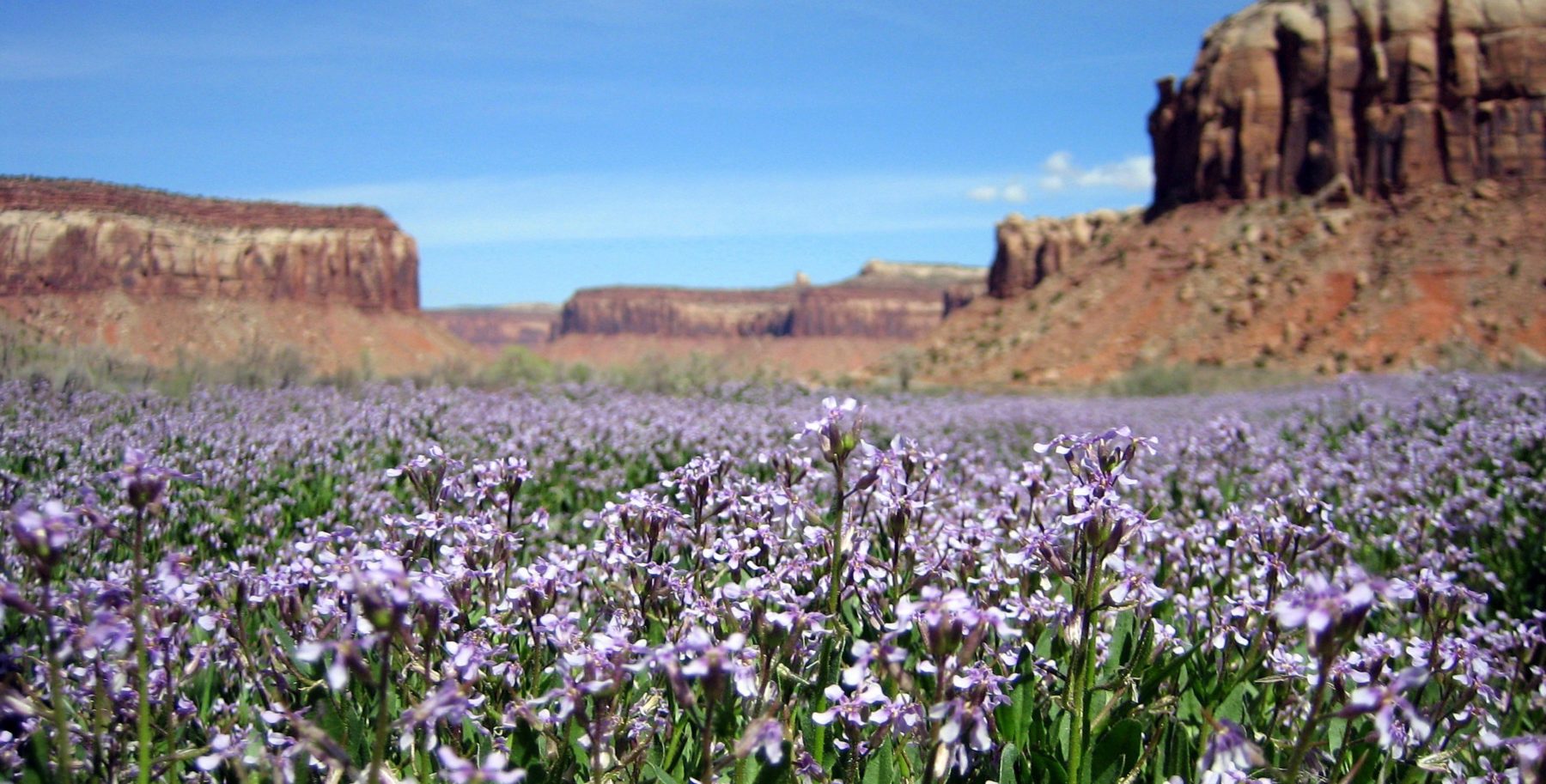
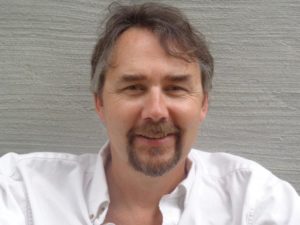
David Gessner is an author, a professor, and one of the leading contemporary voices on the natural world and the American West. He has written ten books, including All the Wild That Remains: Edward Abbey, Wallace Stegner, and the American West, which is one of my all-time favorites and was a former Mountain & Prairie Book Club selection. Thanks to his influences ranging from Henry David Thoreau to Theodore Roosevelt to Wendell Berry, David preaches the gospel of appreciating “place” and protecting our wild landscapes, public lands, and fragile Western ecosystem.
I’ve been a huge fan of David’s work for many years, and have read almost everything he has written. I cannot overstate how much his writing has helped me understand both the history and the modern-day challenges of the American West, as well as the individuals who have shaped the region. Through his masterful prose, he combines history, current events, deep personal insights, and a hilarious sense of humor into amazingly impactful books. Without his writing, my interest in land conservation would be a fraction of what it is today.
David was in Colorado conducting research for a new book focused on public lands, Bears Ears, and Theodore Roosevelt, so we met up in Boulder for our conversation. In a little over an hour, we managed to cover a wide range of topics including public lands, Stegner, Abbey, TR, the idea of “Boomers and Stickers,” and the importance of place. David described how a bout with cancer helped to change his writing style and interests, and how moving to Boulder in his thirties altered the trajectory of his life and career. We discussed his writing process, his coastal writing shack, and how his approach to writing has evolved over the years. As usual, we also touched on favorite books, films, and his most powerful outdoor experience.
Meeting David and having this conversation was a dream come true for me, so many thanks to him for taking the time to chat. There are a lot of resources and other priceless information in this episode, so be sure to check the notes for links to everything. Enjoy!
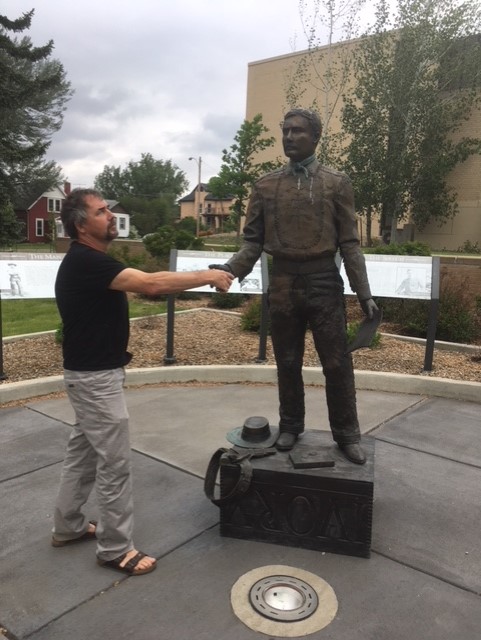
Click Here to Download on iTunes
—
Click Here to Download on Google Play
—
Click Here to Download on Stitcher
—
Episode Notes
Topics Discussed:
-
The Rise of Theodore Roosevelt by Edmund Morris
- Theodore Roosevelt: A Strenuous Life by Kathleen Dalton
- Henry David Thoreau
- Theodore Roosevelt
- Wendell Berry
-
Life Work by Donald Hall
-
Angle of Repose by Wallace Stegner
-
Beyond the Hundredth Meridian by Wallace Stegner
-
Desert Solitaire by Edward Abbey
-
Crossing to Safety by Wallace Stegner
-
How to Change Your Mind by Michael Pollan
Modern Huntsman Book Review – The TR Trilogy
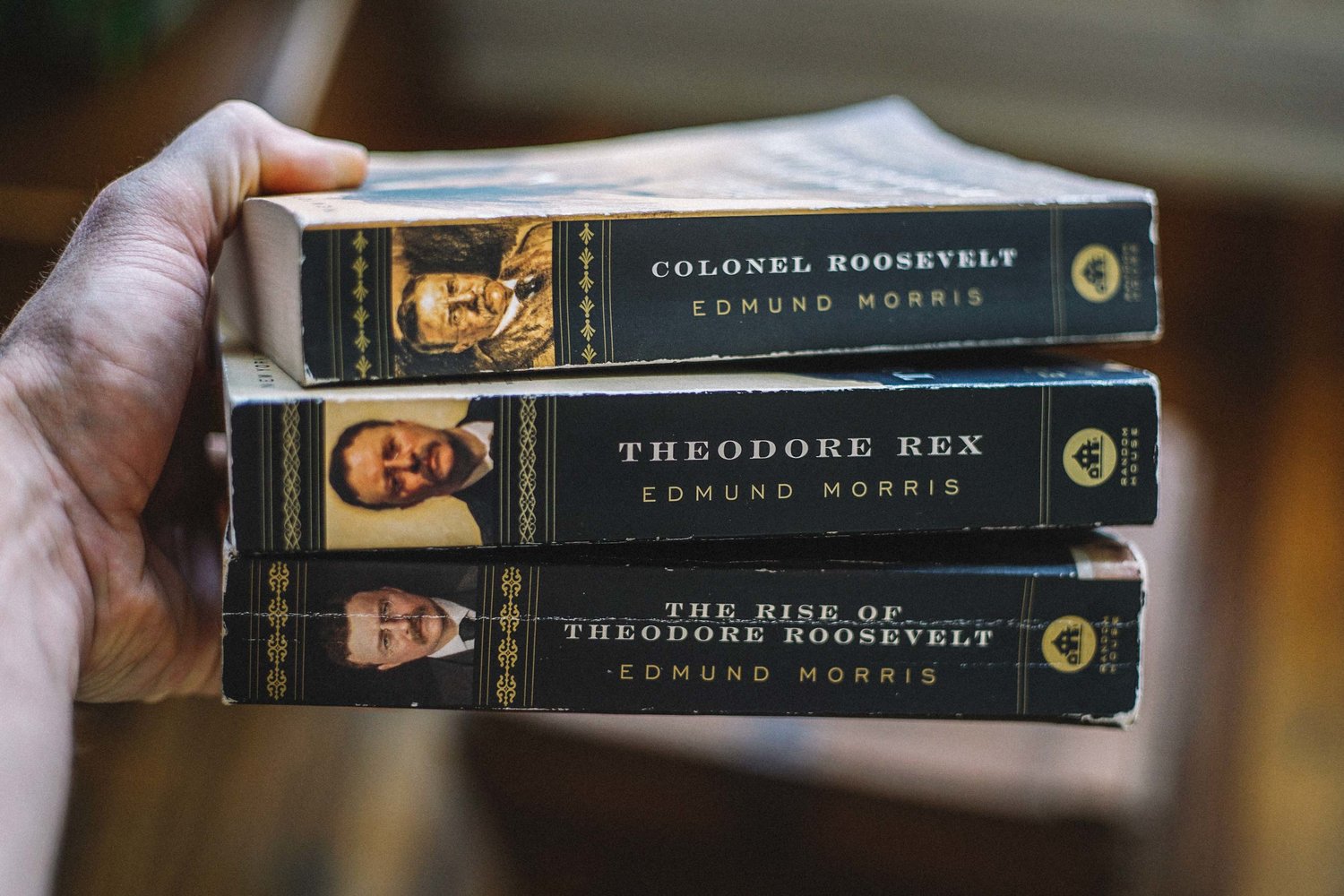
Modern Huntsman Book Review: Theodore Roosevelt Trilogy
Excerpt: “While reading the full trilogy is an accomplishment on its own, it is really just a starting point for a deep understanding of TR, public lands, conservation, and the time period. Curious readers will find dozens of people, places, and concepts that warrant further study, and their reading list will expand wildly with each completed chapter. If the trilogy is the trunk of a great oak tree, there are countless fascinating branches to explore further.”

Have you subscribed to Modern Huntsman yet? If not, you must do so immediately! 200+ pages of impactful prose, stunning photography, and important ideas. Sign up for the biannual publication on their website and help restore the image of hunting.
Header photo by Tyler Sharp
Daniel Vergés – The Pursuit of Simplicity in Art & Life
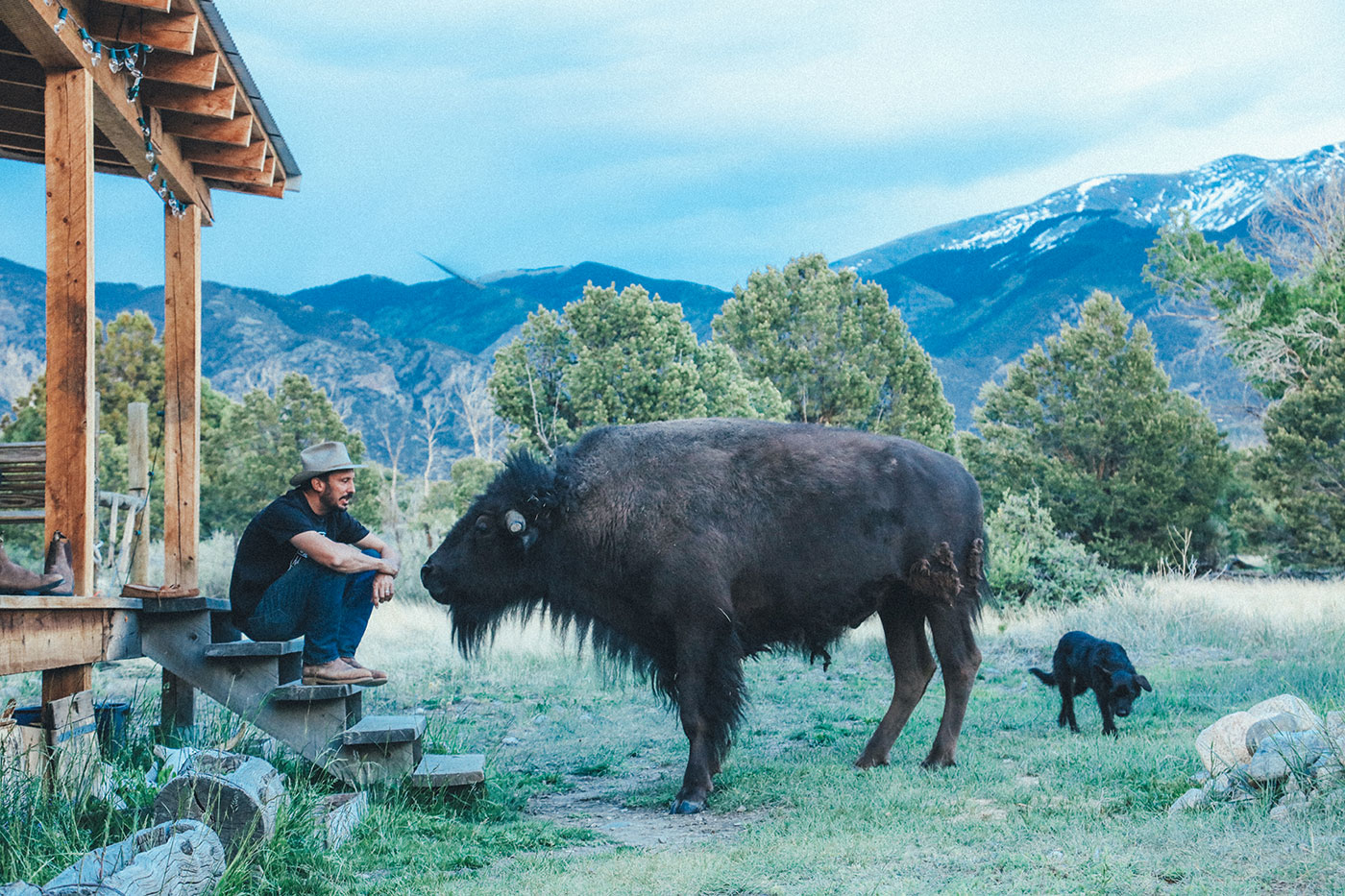
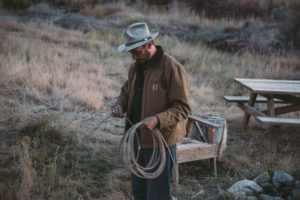
Daniel Vergés is an artist and graphic designer who captures the essence of life in the American West through simple yet amazingly impactful paintings and drawings. Like many of my podcast guests, Daniel grew up obsessed with all things western—but unlike previous guests, Daniel grew up and currently lives in Spain, where he works and creates western-focused art in his rural studio. His life-long love of the West was solidified during the time he spent living and working on the Zapata Ranch, a 103,000-acre cattle and bison ranch located in Colorado’s San Luis Valley.
Despite living so far from the American West now, Daniel’s deep love of and respect for the landscape, people, and history would make you think he’s been here his entire life. Sometimes those of us who live in the West can lose perspective on just what a spectacular place it is, so I enjoyed learning more about Daniel’s perspective as someone who does not physically live here yet is heavily influenced by the West’s landscapes and culture on a daily basis. If you ever find yourself getting jaded about life in the West, just listen to the way he describes mountains, prairies, ranches, and bison, then take a look at his art, and you’ll snap right out of it!
Daniel and I had a wonderful conversation that covered everything from life on the Zapata Ranch to his creative process. We chatted about his childhood interest in the West and his impressions of the wide-open spaces and wildlife during his first trip to Colorado. We discussed how the West influences his art, and how he strives for simplicity in his art and life. We talked about his collaborations with other artists, such as former podcast guest Camrin Dengel, and how these partnerships fuel his creativity. Daniel also discussed how his discipline of daily drawing and his passion for creating have driven his success as an artist. And as usual, we covered books, films, favorite places in the West, and much more, so be sure to check the episode notes for links to everything.
And there’s one more piece of exciting news—Daniel created a special painting for the Mountain and Prairie podcast featuring my favorite animal, the bison. It’s a super-cool piece, and I’m honored that he took the time to create something so special for the podcast. We discuss it a bit during our conversation, and I loved hearing how Daniel created it. Check out the podcast webpage to see it– I set up a little online shop where you can buy shirts and hats featuring the art. There are links on the website to everything, so go check it out!
I know you’ll enjoy this episode. Thanks for listening.
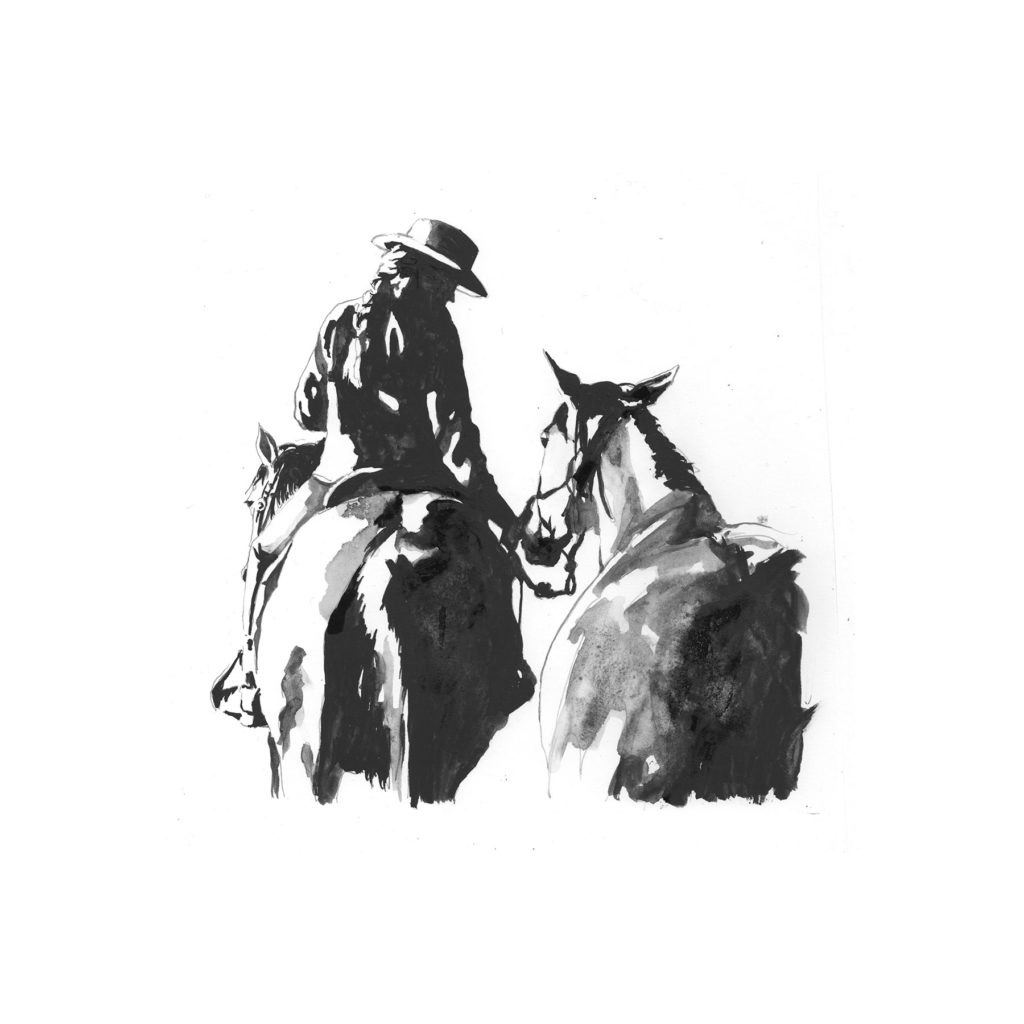
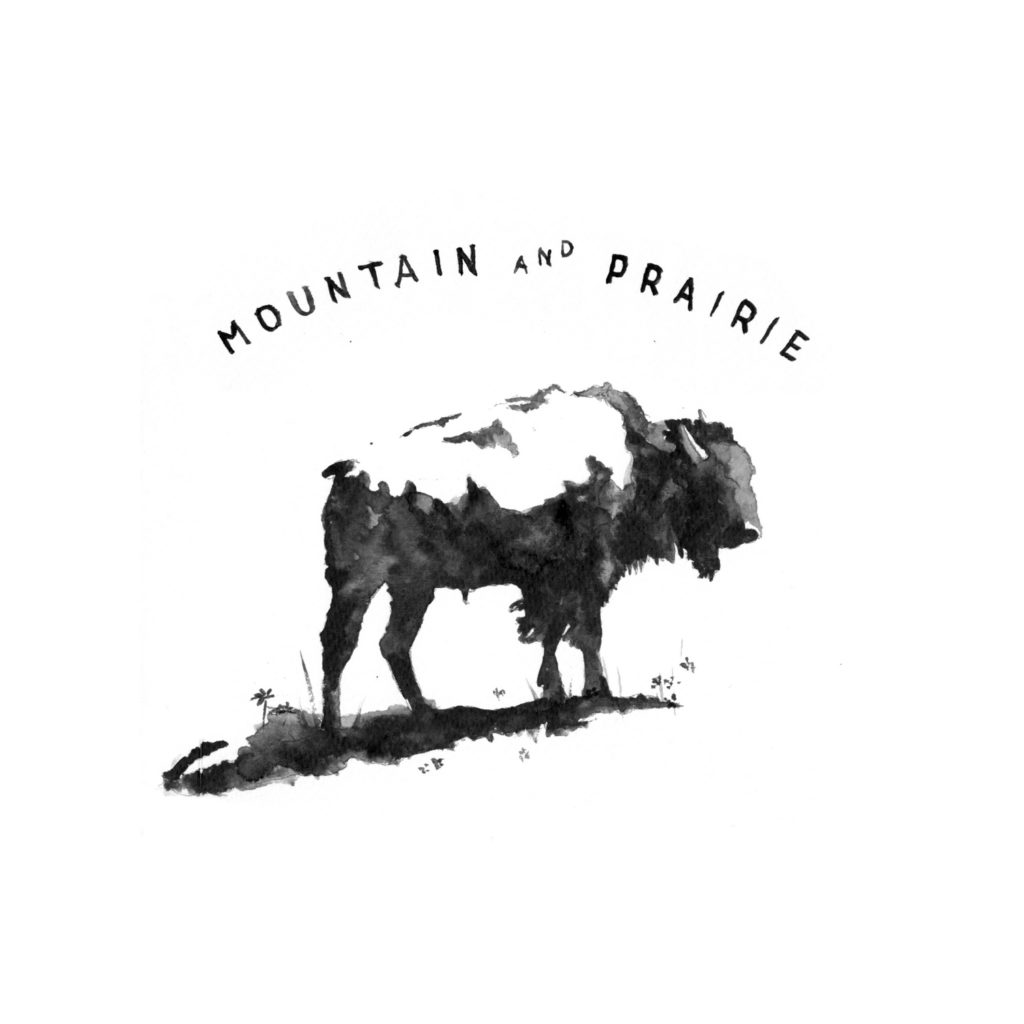
Photos by Kate Matheson, art by Daniel Verges
Click Here to Download on iTunes
—
Click Here to Download on Google Play
—
Click Here to Download on Stitcher
—
Episode Notes
Topics Discussed:
3:00 – How Daniel describes his work
3:30 – Where Daniel lives
4:50 – Daniel’s experience on the Zapata Ranch
7:40 – The West’s influence on Daniel’s art
9:00 – The timeless feeling of the West
10:45 – Teambuilding through branding and ranching
11:40 – First impressions of the West
14:00 – Memorable experience from the ranches
15:40 – Learning horses
18:20 – Daniel describes his art
20:30 – Daniel’s artistic childhood
21:30 – Learning art in university, then self-teaching
24:10 – Slow Artworks
26:10 – How Daniel pushes himself artistically
28:45 – Dealing with creative block
31:30 – Lessons learned from Costa Rica
36:25 – Collaboration with Camrin Dengel and others
38:50 – Mentors and heroes
41:05 – How Daniel’s art has changed
43:50 – Managing social media
46:00 – The podcast artwork created by Daniel
49:00 – Japanese philosophy’s influence on Daniel work
52:05 – Advice to aspiring artists
55:55 – Favorite books
58:50 – Favorite films
1:01:30 – Hobbies, music, running, roping
1:03:20 – Most powerful outdoor experience
1:06:00 – Favorite location in the West
1:07:20 – Best advice
1:10:30 – Request of the listeners
- Daniel on Instagram
- Slow Artworks
- Ranchlands
- Zapata Ranch
- Chris Eyer interview
- Sarah King interview
- Camrin Dengel interview
- Jillian Lukiwski interview
- Teal Blake interview
- Duke Beardsley interview
- Mark Maggiori interview
- Becca Skinner interview
- In Praise of Shadows by Junichiro Tanizaki
- Wabi Sabi for Artists, Designers, Poets, and Philosophers by Leonard Koren
- Seth Godin
- The Glass Castle by Jeannette Walls
- The Wolves of Currumpaw by William Grill
- Walking by Thoreau
- My Family and Other Animals by Gerald Durrell
- Wind River
- Hostiles
- Charged
- Daniel Verges – Mountain & Prairie Art for Sale
Best Books on Farming – A Crowdsourced List
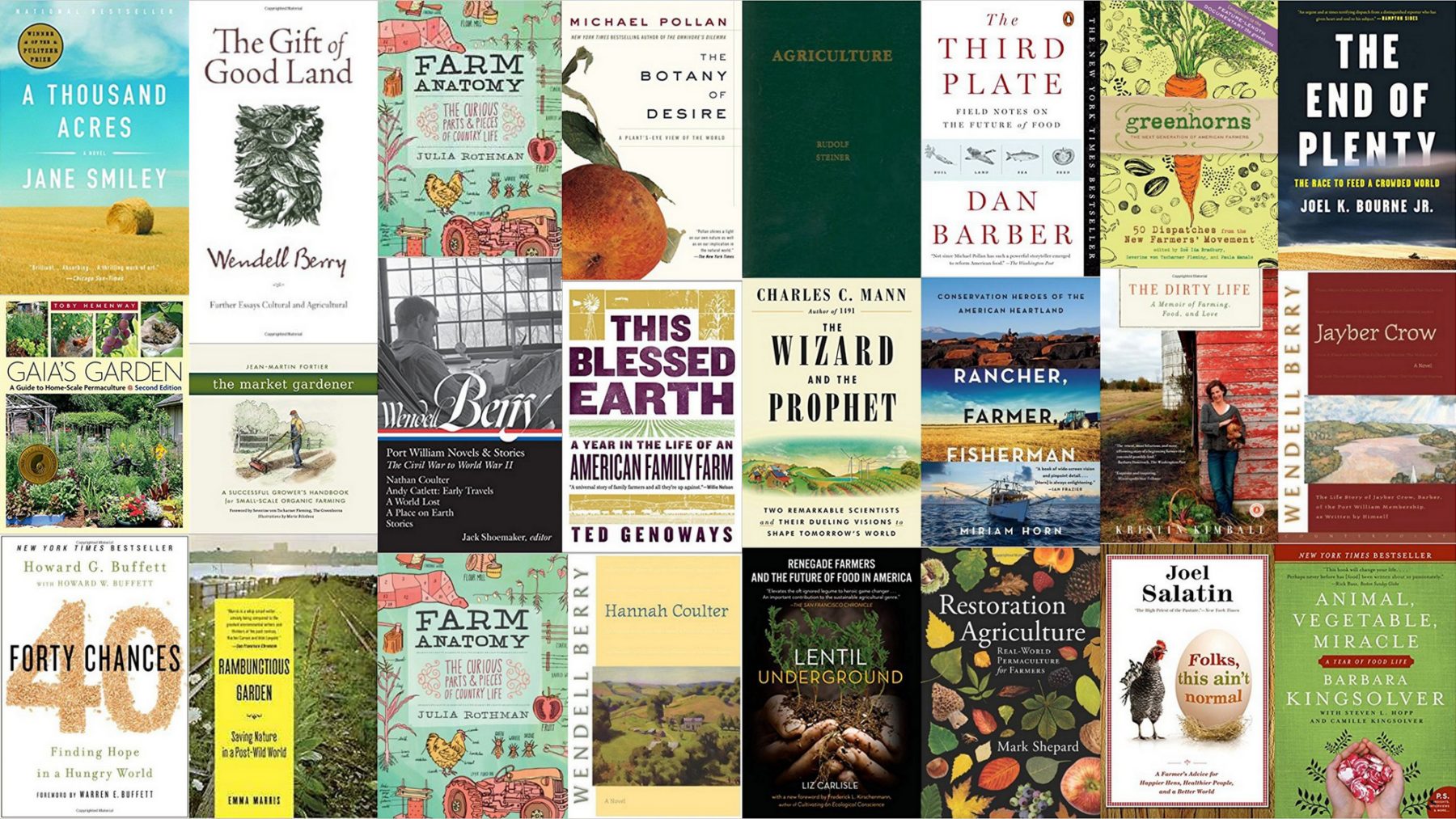
Best Books on Farming – A Crowdsourced List
If you listen to the podcast, you know that I’m fascinated with agriculture and its ecological and economic benefits to our culture here in the American West. Recently, I’ve been working in the farming community along Colorado’s lower Arkansas Valley—some of the most fertile and productive farmland in the Rocky Mountain West. I am thoroughly impressed by these farmers’ tireless work ethic, their commitment to sustainable agricultural practices, and their desire to see the land remain in production, rather than being developed into another poorly planned strip mall or housing development.
My immersion in Colorado’s farming culture has only whet my appetite to learn more, so I reached out to the podcast listeners via Instagram and asked “What is the best book on farming that you’ve ever read?” I received so many excellent suggestions, from well-known bestsellers to esoteric cult classics. The full list is below, in no particular order.
Keep in mind, I have not read most of these books (yet), so I can’t vouch for all of them personally. But given the curiosity and passion of Mountain & Prairie Podcast listeners, I trust that these books offer valuable perspectives on farming and agriculture—a diverse set of historical, philisophical, technical, cultural, and ecological outlooks on a complex subject. While I may not agree with every point made in these books, I do love the process of learning, exploring new ideas, challenging my preconceived notions, and making up my mind based on thorough reading and research.
Thanks to everyone who took the time to reach out with recommendations. If you notice any glaring omissions, please let me know in the comments below!
- Rancher, Farmer, Fisherman: Conservation Heroes of the American Heartland by Marian Horn
- Lentil Underground: Renegade Farmers and the Future of Food in America by Liz Carlisle
- A Thousand Acres: A Novel by Jane Smiley
- This Blessed Earth: A Year in the Life of an American Family Farm by Ted Genoways
- Animal, Vegetable, Miracle: A Year of Food Life by Barbara Kingsolver
- Wendell Berry: Port William Novels & Stories by Wendell Berry
- Jayber Crow by Wendell Berry
- Hannah Coulter by Wendell Berry
- The Gift of Good Land: Further Essays Cultural and Agricultural by Wendell Berry
- Greenhorns: The Next Generation of American Farmers by Zoe Ida Bradbury
- The Dirty Life: A Memoir of Farming, Food, and Love by Kristin Kimball
- Folks, This Ain’t Normal: A Farmer’s Advice for Happier Hens, Healthier People, and a Better World by Joel Salatin
- Your Successful Farm Business: Production, Profit, Pleasure by Joel Salatin
- The End of Plenty: The Race to Feed a Crowded World by Joel K, Bourne, Jr.
- The Market Gardener: A Successful Grower’s Handbook for Small-Scale Organic Farming by Jean-Martin Fortier
- 40 Chances: Finding Hope in a Hungry Word by Howard Buffett
- The Wizard and the Prophet: Two Remarkable Scientists and Their Dueling Vision to Shape Tomorrow’s World by Charles C. Mann
- The Omnivore’s Dilemma: A Natural History of Four Meals by Michael Pollan
- The Botany of Desire: A Plant-Eye View of the World by Michael Pollan
- Third Plate: Field Notes on the Future of Food by Dan Barber
- The Shepherd’s Life: Modern Dispatches from an Ancient Landscape by James Rebanks
- Cowed: The Hidden Impact of 93 Million Cows on America’s Health, Economy, Politics, Culture. and Environment by Denis Hayes and Gail Boyer Hayes
- The Meat Racket: The Secret Takeover of America’s Food Business by Christopher Leonard
- The Rambunctious Garden: Saving Nature in a Post-Wild World by Emma Marris
- Farm Anatomy: The Curious Parts and Pieces of Country Life by Julia Rothman
- Restoration Agriculture: Real-World Permaculture for Farmers by Mark Shepard
- Gaia’s Garden: A Guide to Home-Scale Permaculture by Toby Hemenway
- Agriculture: Spiritual Foundations for the Renewal of Agriculture by Rudolf Steiner
- Books by Elliot Coleman
- Books by Wendell Berry
- Books by Joel Salatin
- New Roots for Agriculture by Wes Jackson
Book Club Selection: “The Big Burn” by Timothy Egan
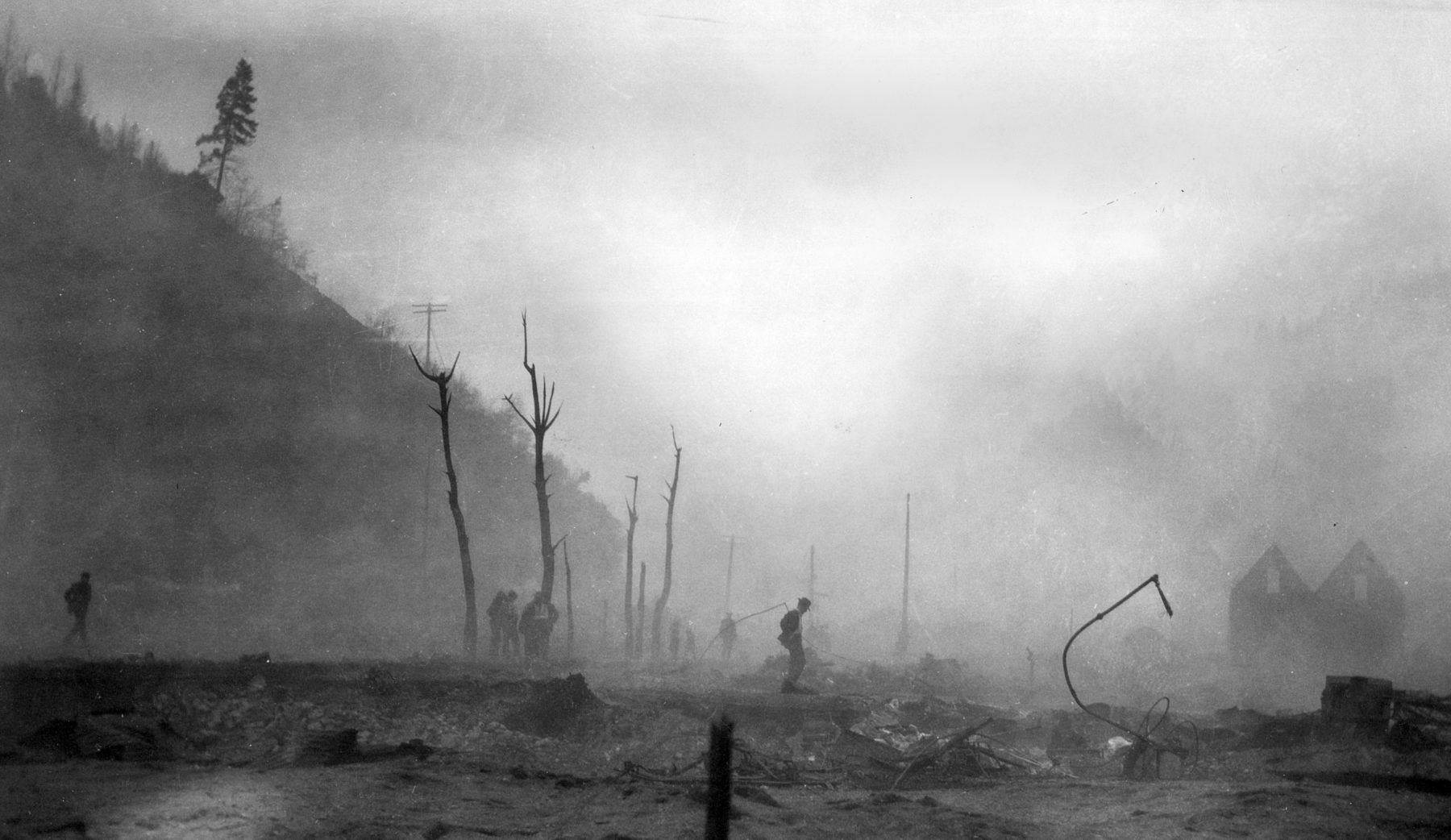
May-June Book Club Selection: “The Big Burn” by Timothy Egan
If you listen to the podcast, odds are you’ve been paying close attention to the ongoing public lands debate. I’d also venture a guess that you’ve spent a considerable amount of time exploring public lands, whether scaling one of Colorado’s 14ers, camping in the alpine of the Wind River Range, or simply peering of the edge of the Grand Canyon. Public lands are what make the West the West, and they are the foundation of everything unique about the region, from wildlife to scenic views, natural resources to recreation.
To fully understand– or even begin to understand– the American West, you need to understand the history of public lands, so the May-June book club selection is:
The Big Burn: Teddy Roosevelt and the Fire That Saved America by Timothy Egan
The book is centered around a massive and deadly forest fire that burned over 3 million acres of Montana, Idaho, and Washington in just two days. While the story of the wildfire is exciting and tragic, I found the real value of this book to be the detailed history of the creation of the United States Forest Service—how our public lands came to be seen as a national treasure owned by the people, rather than a resource to be exploited by robber barons.
As noted in the subtitle, the book digs into the role that Theodore Roosevelt played in shaping conservation policy, as well as the powerful political and economic forces he had to fight to ensure the protection of these landscapes. Egan also paints a vivid picture of Gifford Pinchot, TR’s right hand man in conservation and the first head of the US Forest Service. Pinchot was an interesting dude to say the least—he would hold conversations with the ghost of his deceased wife, began each day by pouring buckets of ice-cold water on this head, and would regularly square off in boxing and wrestling matches against TR.
The topics and people examined in this book are more important now more than ever—if you want to be an effective advocate for public lands, it’s mandatory to understand this history. I loved this book, and I think about it regularly as I visit the far-flung corners of the American West. But don’t take my word for it, check out this glowing Los Angeles Times book review for a solid synopsis.
This book club selection is being offered in conjunction with the Diablo Trust’s monthly book club. Diablo Trust is a leader in cutting-edge conservation in the southwestern US, so I highly encourage you to check out their website and consider supporting their work. At the least, read along with their book club— they have some wonderful monthly selections!
If you’d like to participate:
- Grab a copy of The Big Burn—purchase it from Amazon or your local bookseller, or check it out from your local library. Start reading.
- Head over to our Goodreads Group. Create an account, then join in the conversation in the online discussion forum. As you read, give your feedback on the book, pose questions to the group, and share your first-hand experience reading Stegner and Abbey. The only way this works is with lot of participation from lots of people, so the more the better.
Mountain & Prairie Book Club – Goodreads Group
Not interested in TR, Pinchot, or The Big Burn? Then get started on the July-August Book Club selection: Blood and Thunder by Hampton Sides. More details will be announced in early July.
Adam Foss – Lessons Learned From a Life Afield
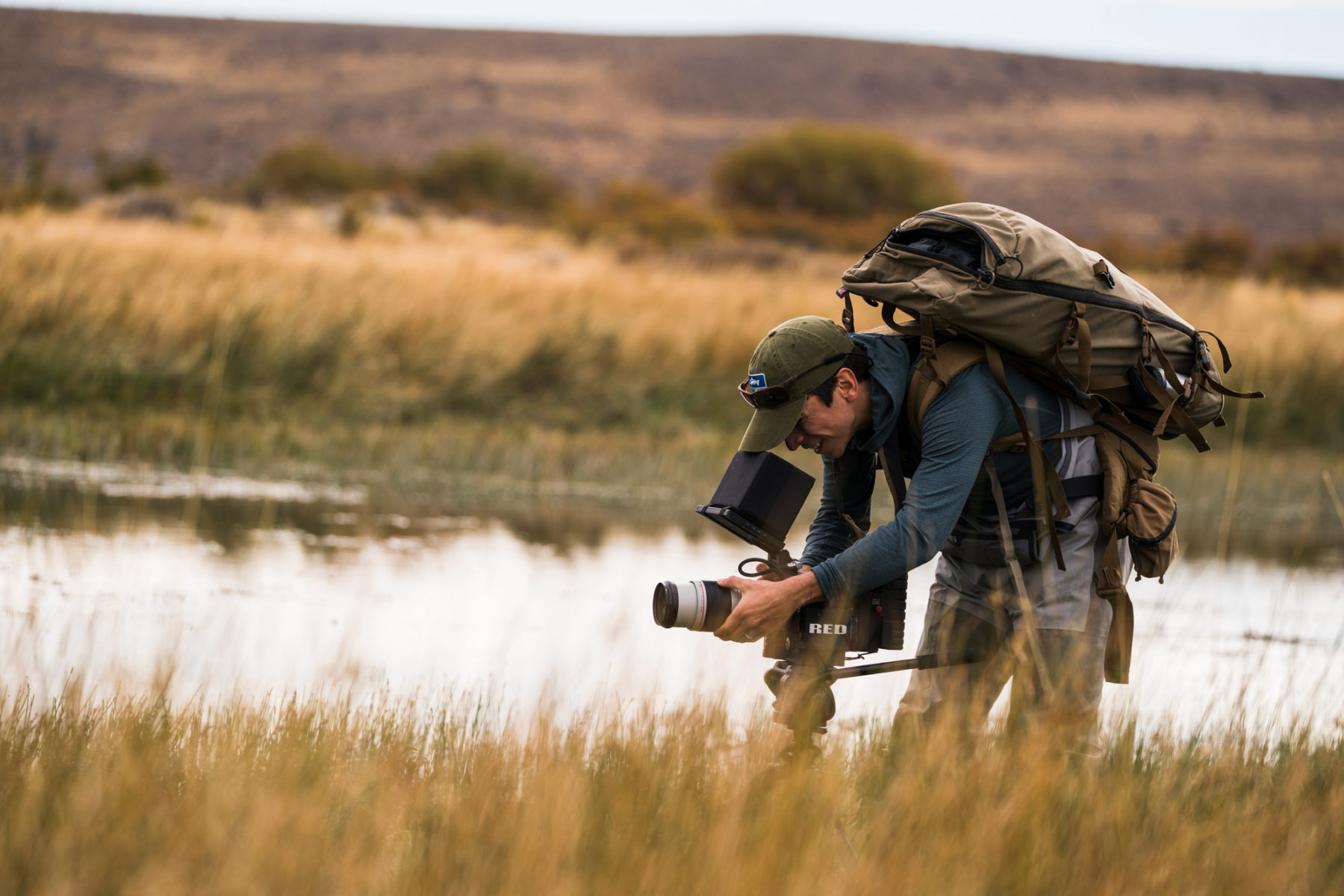
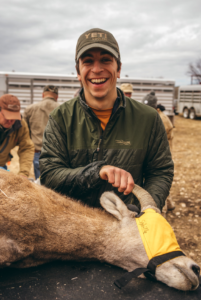
Adam Foss is a world-class hunter who has transformed his passion for wildlife and wild places into a rewarding career in filmmaking and photography. Adam has been obsessed with wilderness adventure for practically his entire life. At age 24, he was the youngest person to take all four species of North American sheep with a bow, an amazing achievement for a hunter of any age. But despite this accomplishment and others, Adam is much more focused on the process of the hunt—spending challenging days in the mountains, forming long-lasting friendships, stewarding public lands, and conserving legendary big game species.
Born in the Canadian Rockies, Adam spent much of his youth bow hunting with his father and older brother. As he grew older, his hunting trips expanded in geography and complexity, and he has now hunted many of the world’s wildest places for some of the most renowned big game. Adam initially considered a career in wildlife biology, but decided to go the creative route instead—he and his wife are now the owners of Foss Media, a company that creates films and photography for some of the most iconic outdoor brands today. As you’ll hear, Adam is passionate about wildlife, storytelling, and conservation, but he is equally humble, grounded, and grateful for being able to do what he loves on a daily basis.
We caught up over Skype, as Adam and his wife are currently traveling around Canada and the American West working on creative projects. We had a fun conversation and managed to cover a lot in just over an hour. We discussed Adam’s childhood in Canada and the lessons he learned from hunting with his father and brother. We chatted about how Adam values the process of hunting over the end goal of taking an animal and our shared theory that hunting taps into something primal in our human DNA. We talked in detail about conservation, specifically the role of public lands in both the United States and Canada. Adam also offered some wise advice to people who want to learn to hunt but may not have a long-standing connection to the sport. And as usual, we discussed Adam’s favorite books, films, and his most powerful outdoor experience.
This was such a fun conversation, and it’s clear that Adam has thought long and hard about these issues. I really enjoyed getting to know Adam, and I think you will too.
Photos courtesy of Adam Foss
Click Here to Download on iTunes
—
Click Here to Download on Google Play
—
Click Here to Download on Stitcher
—
Episode Notes
Topics Discussed:
7:15 – Adam’s upbringing in Canada
8:50 – Hunting with his dad in the mountains
10:45 – University in British Columbia and more far reaching hunts
12:30 – Adam’s early career goals
14:30 – Lessons learned from hunting with his father
17:45 – Breaking down hunts into manageable peices
20:45 – The mental game of hunting
23:00 – Process over goals
25:45 – Adam’s love of adventure and challenges
27:35 – Influences and mentors
33:15 – Adam’s current goals for a hunt
38:00 – South America trip
39:30 – Hunting as a part of human’s DNA
43:15 – Advice to new hunters
48:15 – Importance of public lands
52:15 – Thoughts on wolves and ecological balance
59:30 – Favorite books
1:02:55 – Favorite documentaries
1:05:20 – Most powerful outdoor experience
1:15:00 – Connect with Adam online
- Foss Media
- Adam on Instagram
- Wild Sheep Foundation
- Rocky Mountain Goat Alliance
- Andy Russell
- Life at Full Draw: The Chuck Adams Story by Gregg Gutschow
- Backcountry Bow Hunting by Cam Haynes
- Jack Frost
- Tom Hoffman
- Charles Post podcast
- Tyler Sharp podcast
- Modern Huntsman
- The Nature Fix by Florence Williams
- Horns in the High Country by Andy Russell
- The Alchemist by Paulo Coelho
- Death in the Long Grass by Peter Capstick
- Death in the Silent Places by Peter Capstick
- Tim Ferriss
- Tim Ferriss Podcast
